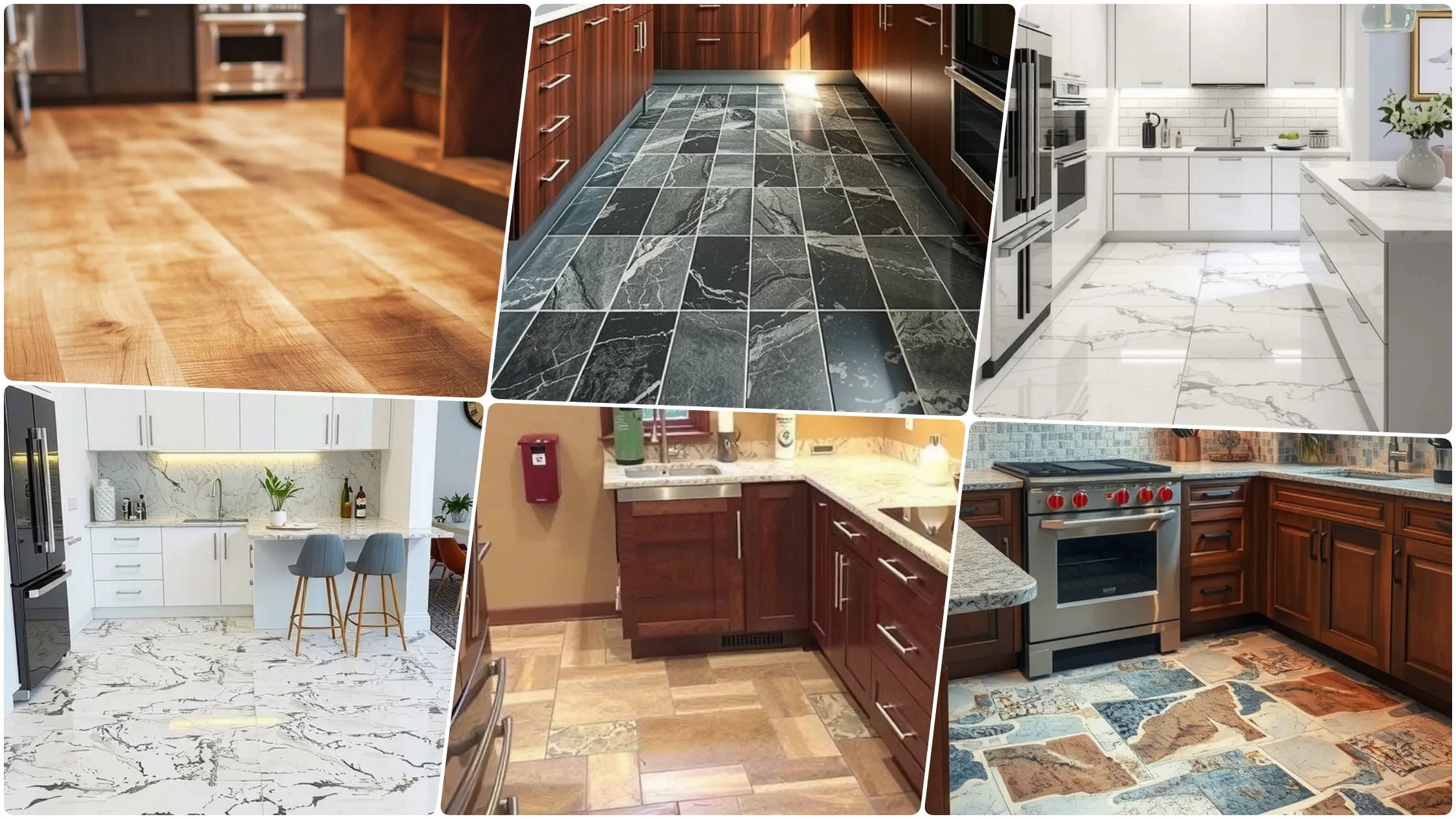Finding the right floor for your kitchen is key. It defines the space and deals with all the hustle and bustle, spills, and more. 🔨🏡
So, let’s explore some stylish and durable options that really deliver. And don’t forget to look at the images for some inspiration! ✨🖼️
1. White Marble
These guys: polished marble. They give a really luxurious, high-end feel to any space.
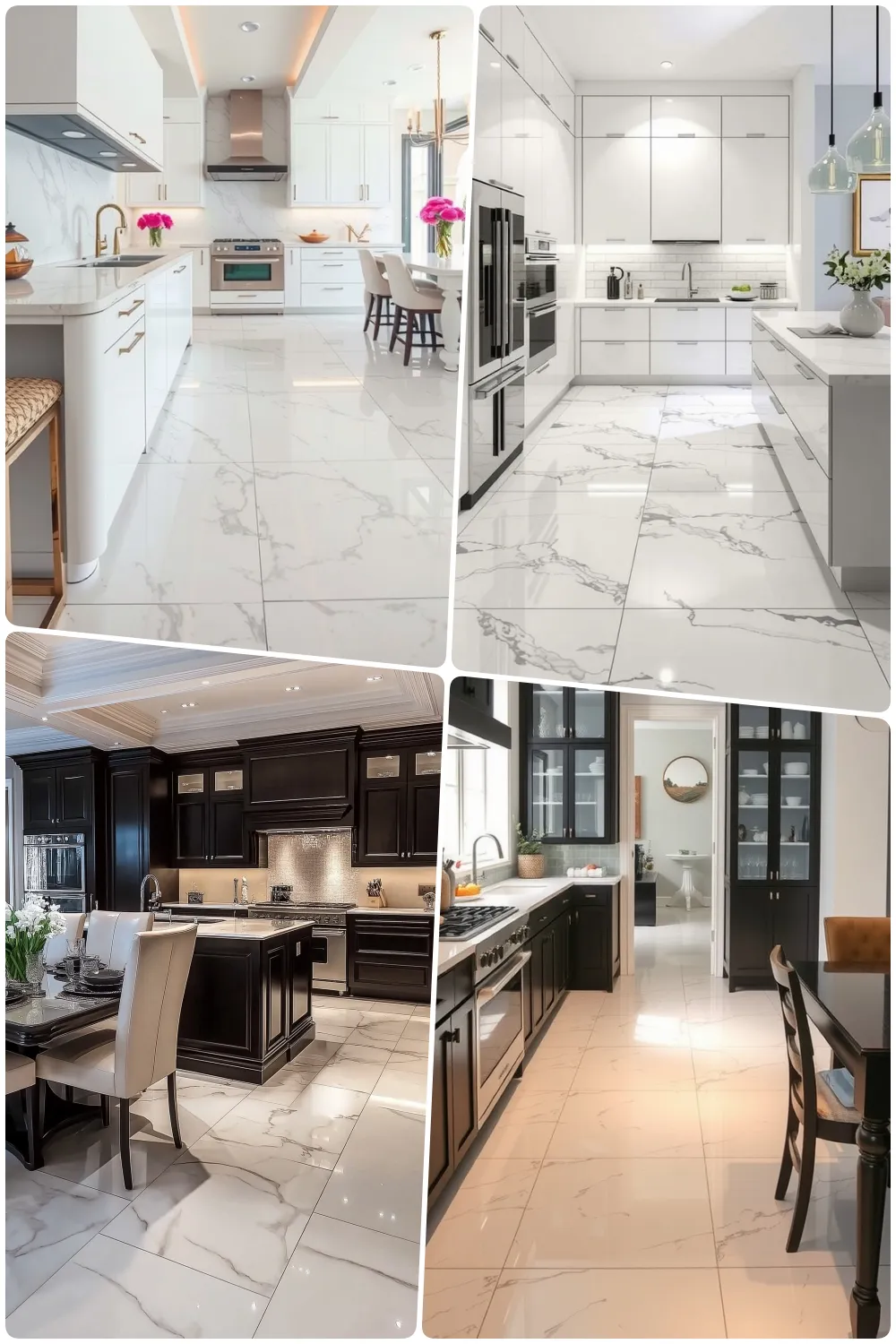
Sure, they require a bit of maintenance because stains can be a hassle, but honestly, their sheer elegance usually makes you forget about those little setbacks.
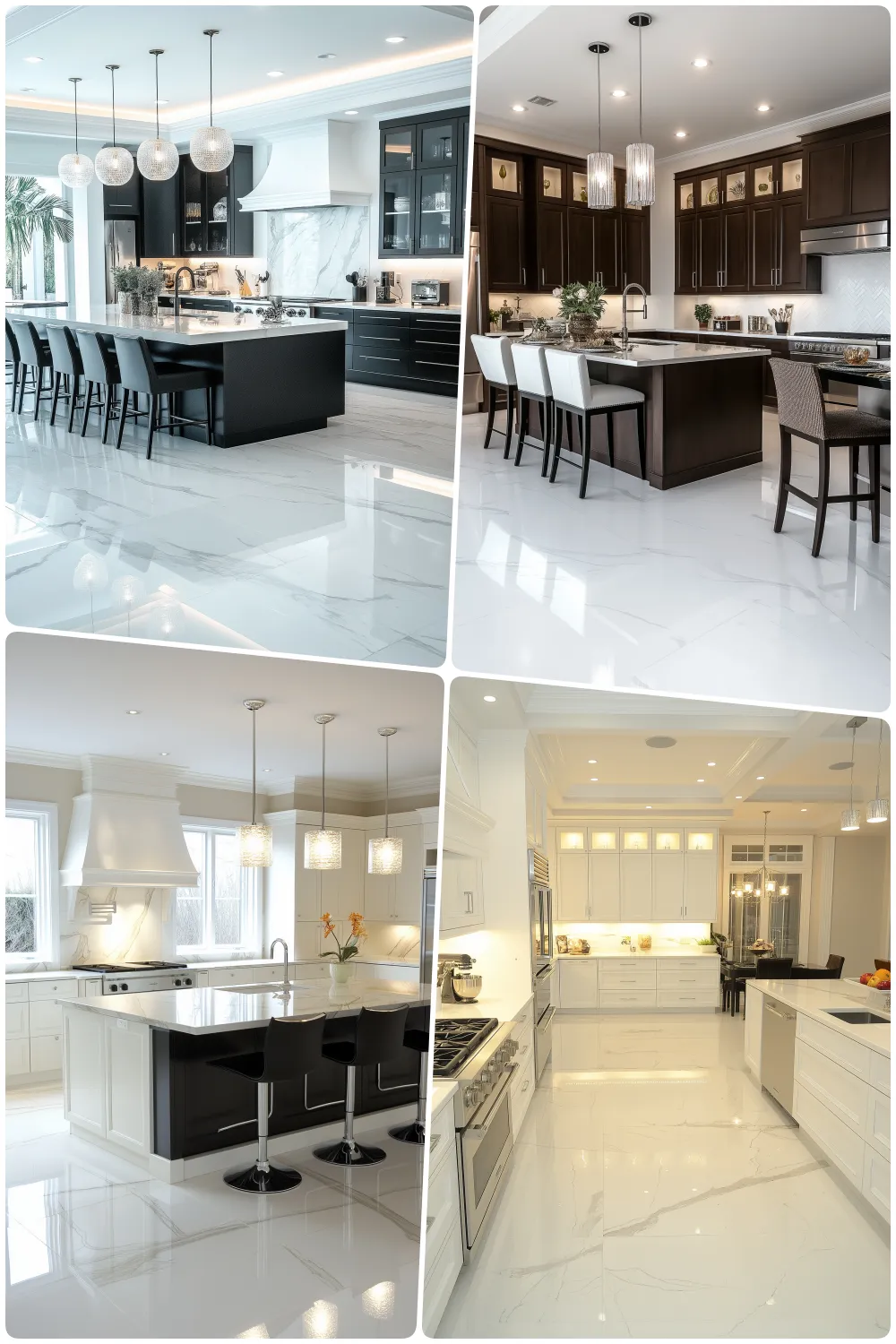
2. Checkerboard Pattern
Ah, the timeless black-and-white checkerboard design—it’s a classic pick for bringing a touch of sophistication to any kitchen. You can pull this off with marble, vinyl, or ceramic tiles, each offering its own kind of charm.
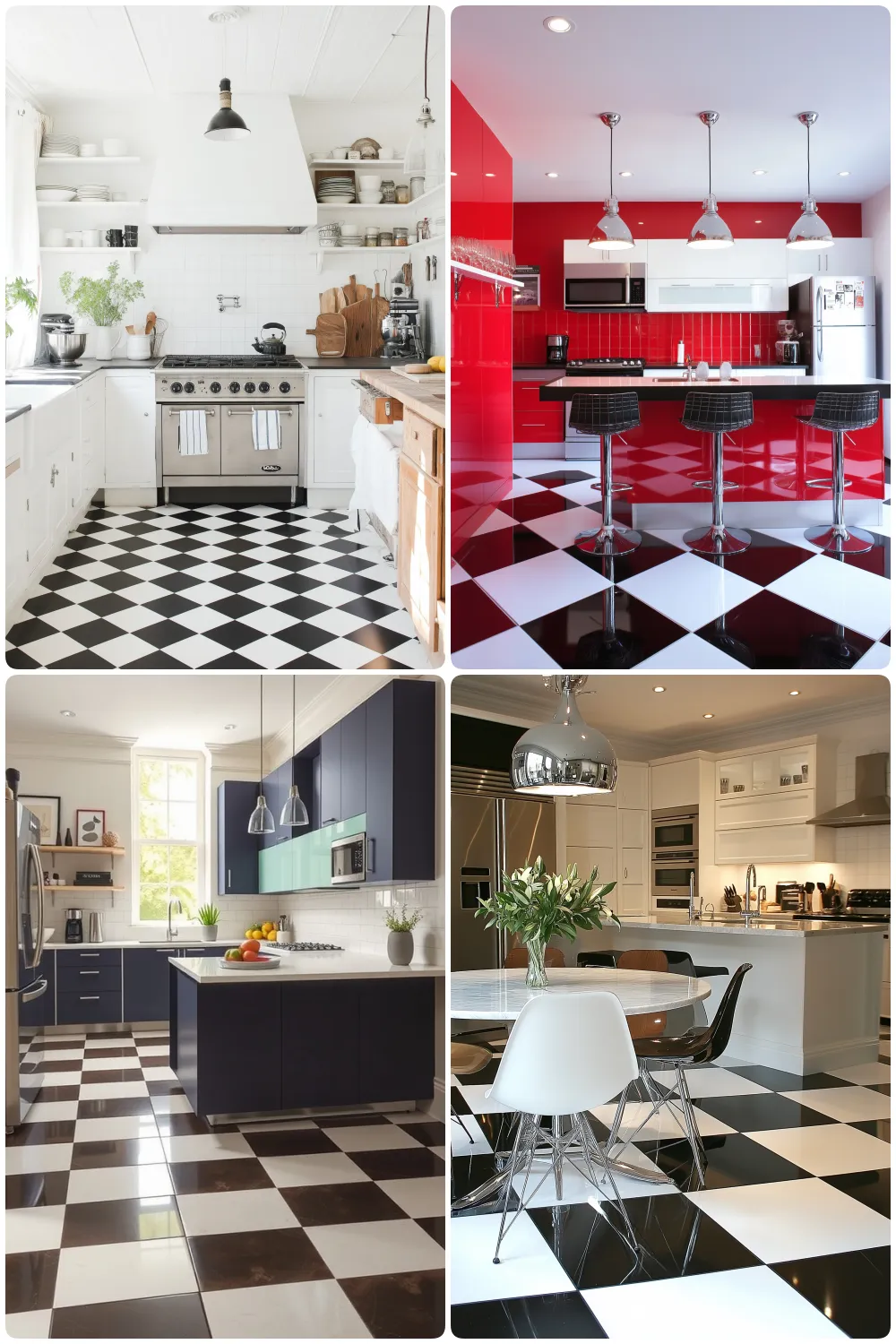
This setup brings elegance but also a sense of nostalgia. It’s that kind of design that’s hardy enough to last though the ups and downs of tastes and trends, totally timeless.
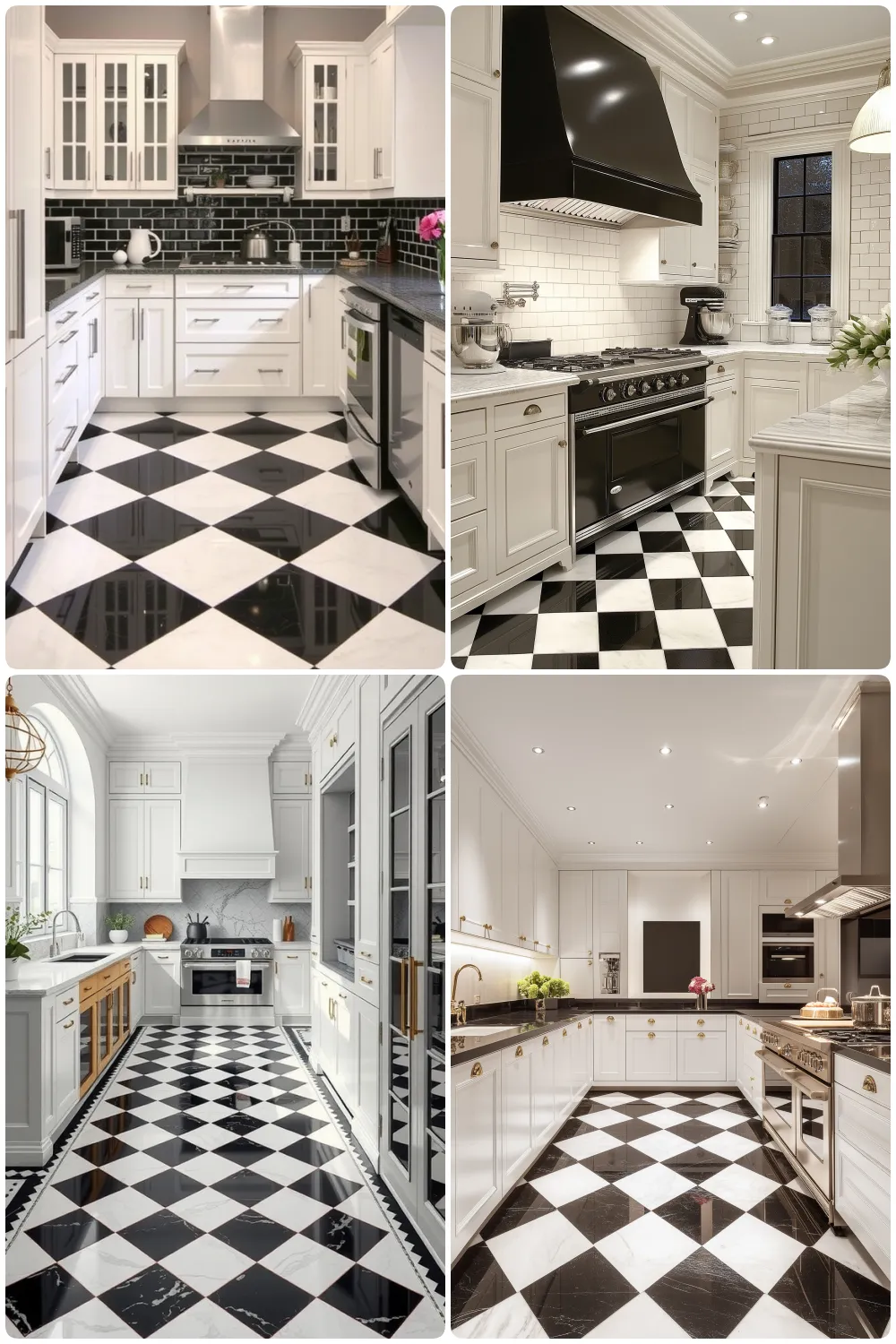
3. Trendy Terrazzo
Terrazzo tiles, you know, the ones with marble, granite, and quartz chips mixed in, give folks who want a little something extra an exciting choice compared to plain old concrete floors.
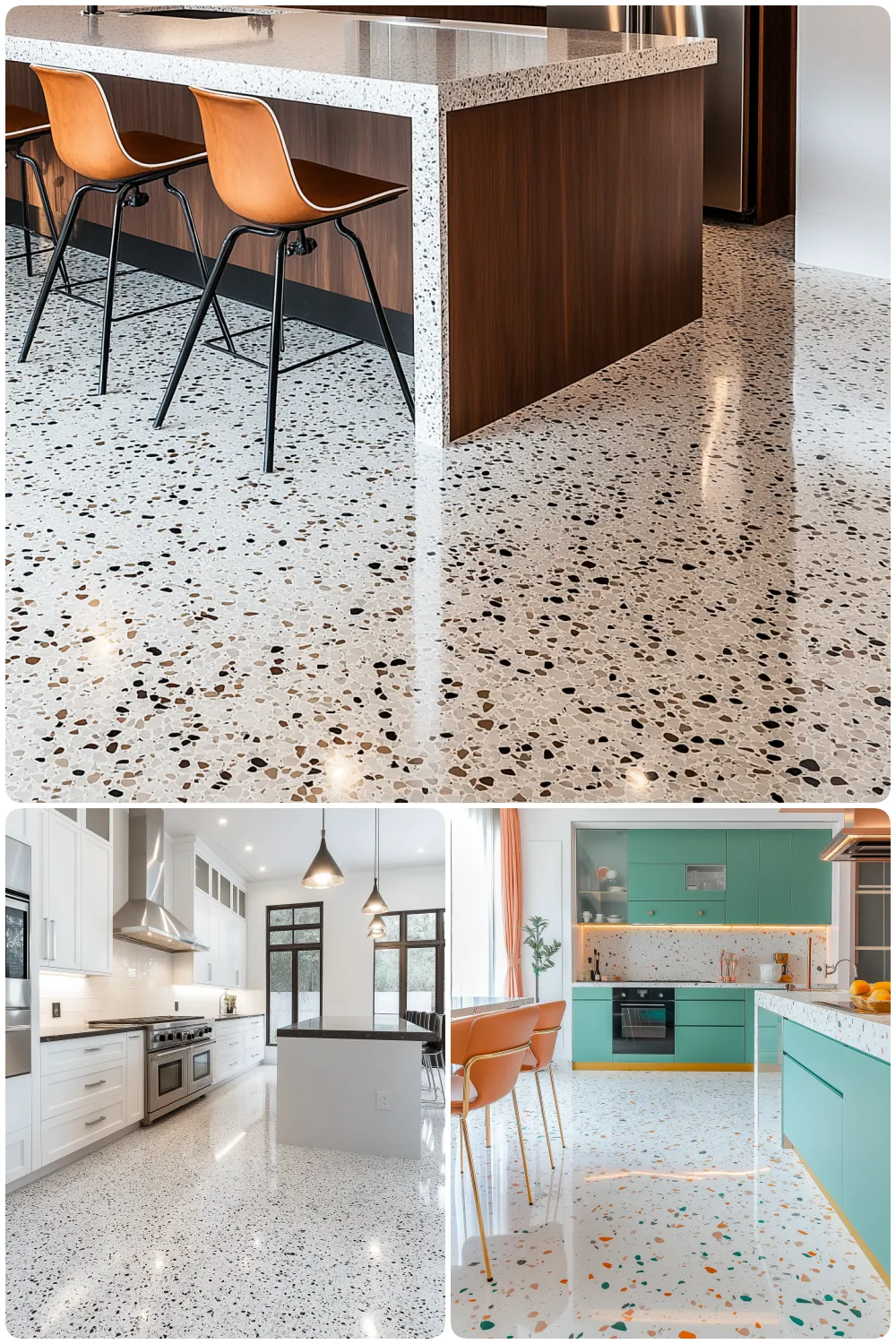
That lively, speckled look isn’t just any passing fancy—it’s a huge hit in all of your modern kitchen setups these days!
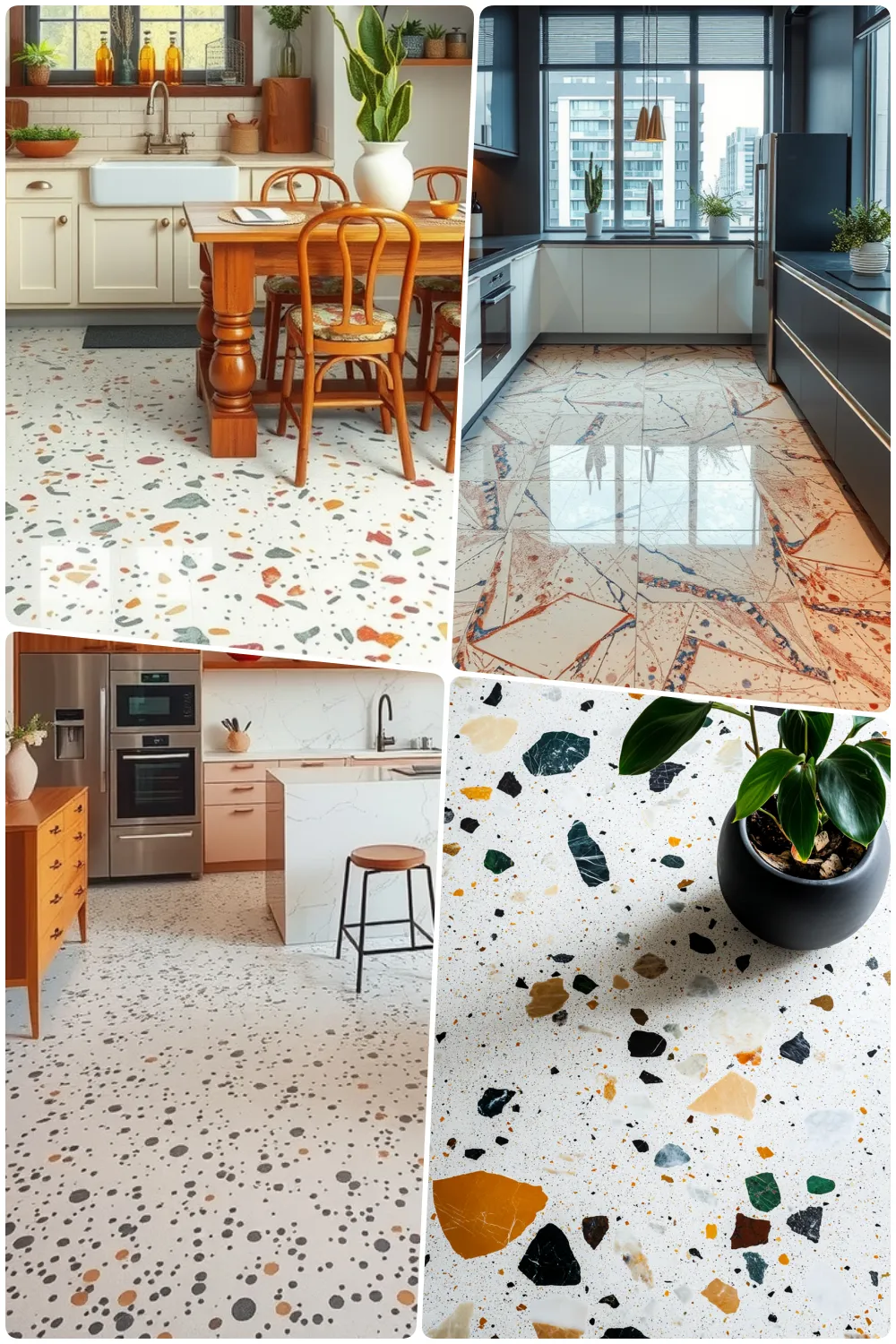
4. Faux Wood Vinyl
Faux wood vinyl is pretty awesome because you get the lovely look of hardwood floors without the hefty downsides. I mean, it’s perfect for kitchens because it’s waterproof, and it’s a tough cookie against spills.
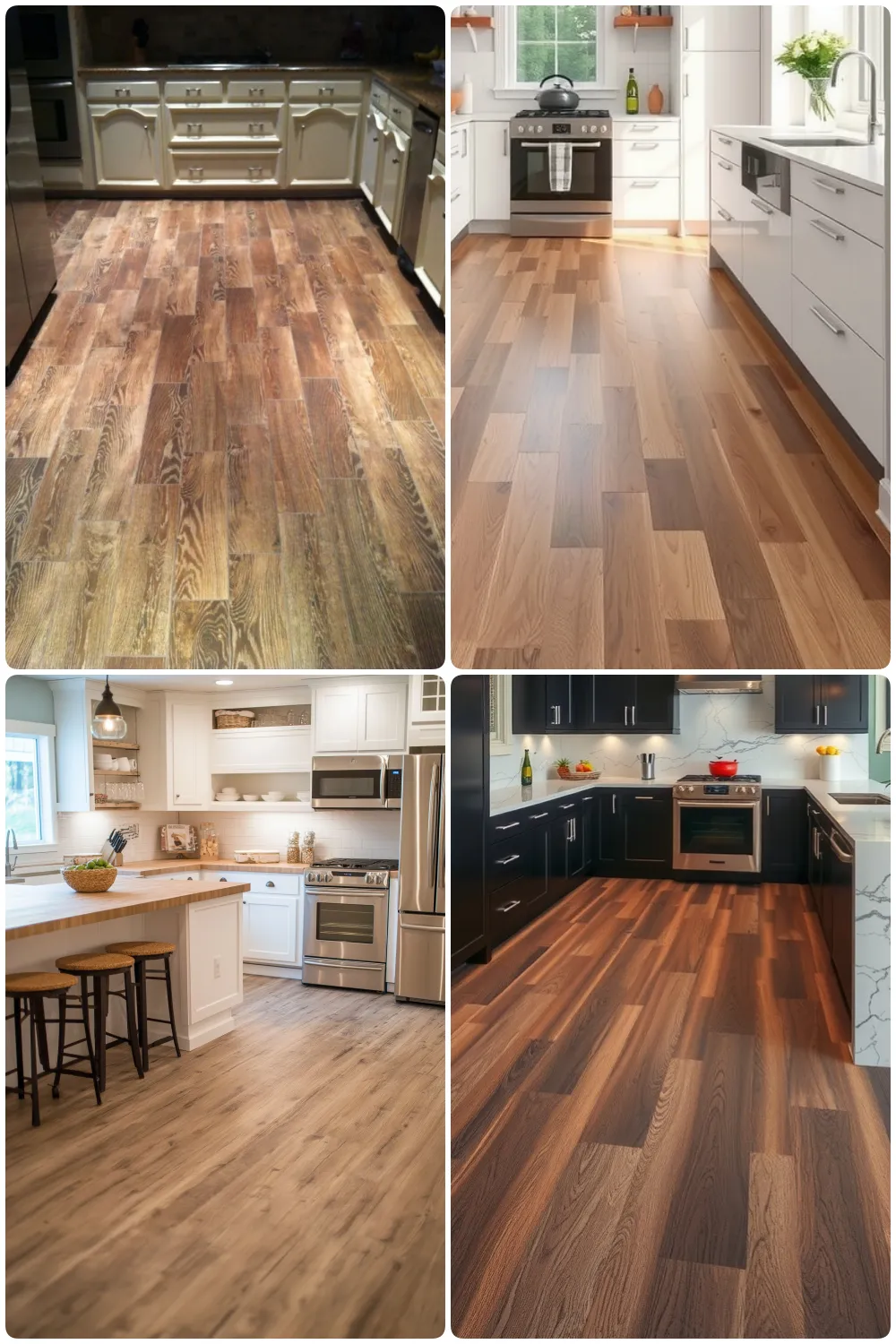
It often comes with a snug cork underlayment that adds a cozier, warmer feel under your feet. Not a bad deal, right?
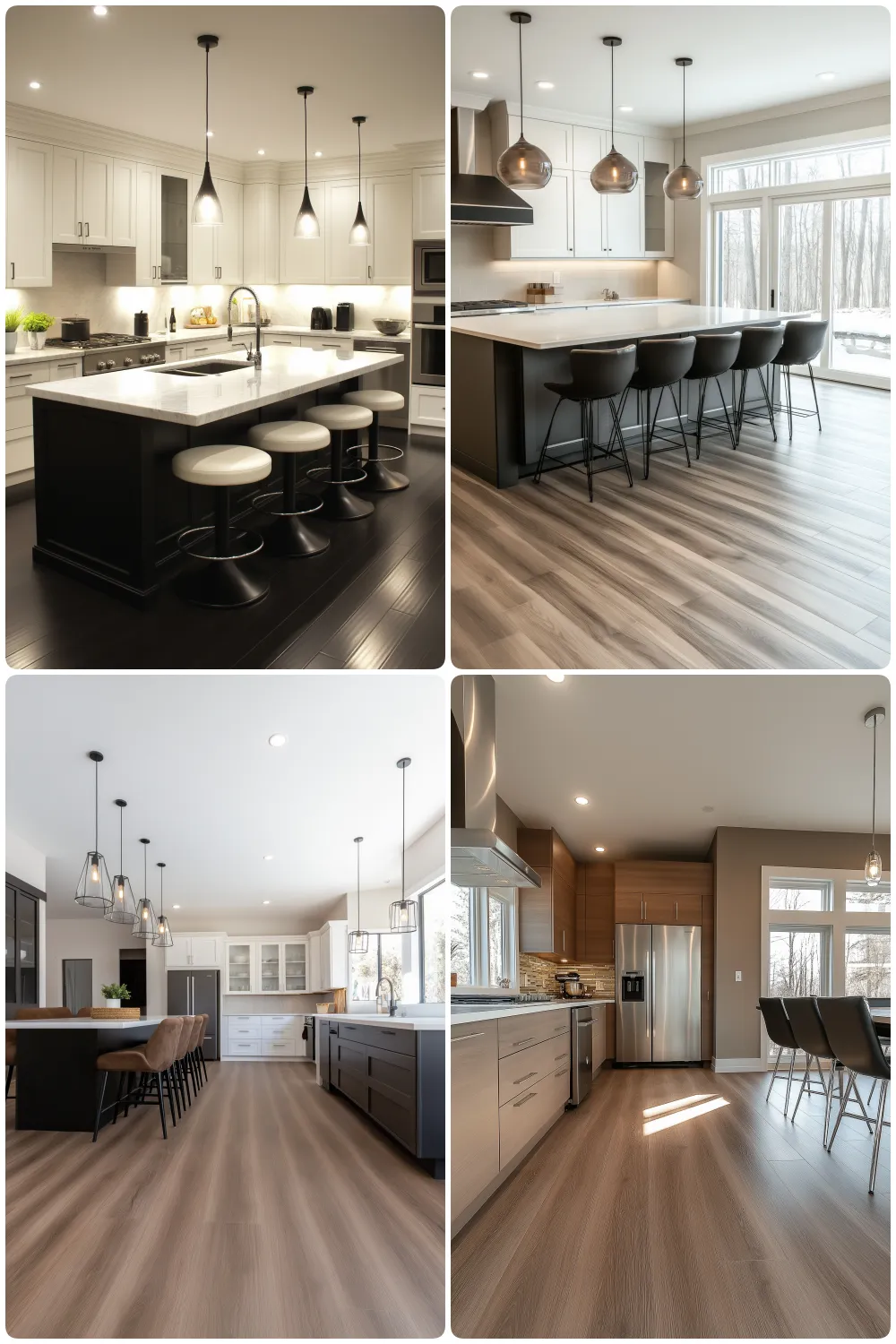
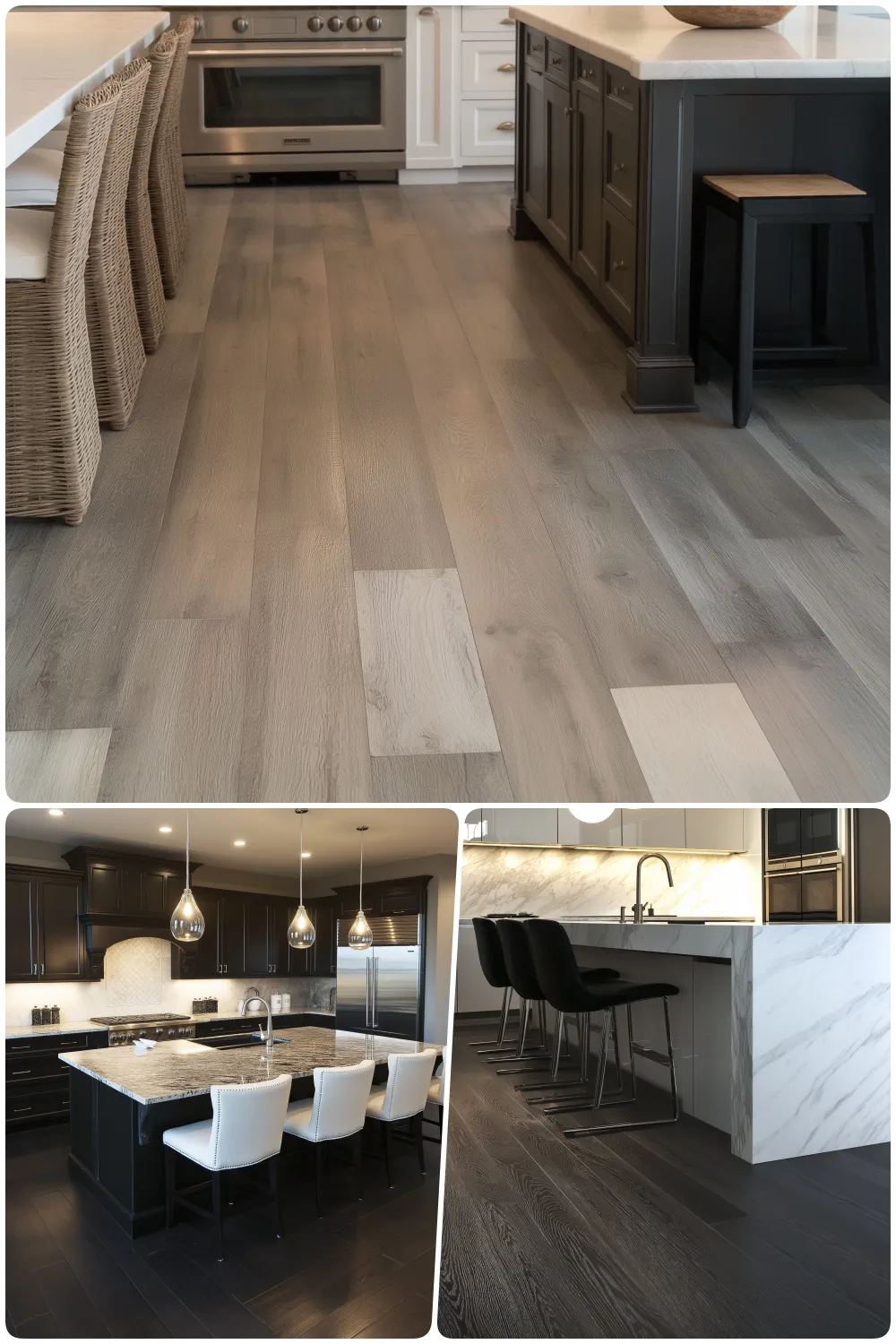
5. Geometric Designs
Using geometric tiles (cool shapes) in your kitchen floor, like hexagons or diamonds, adds a modern vibe and tons of creative possibilities.
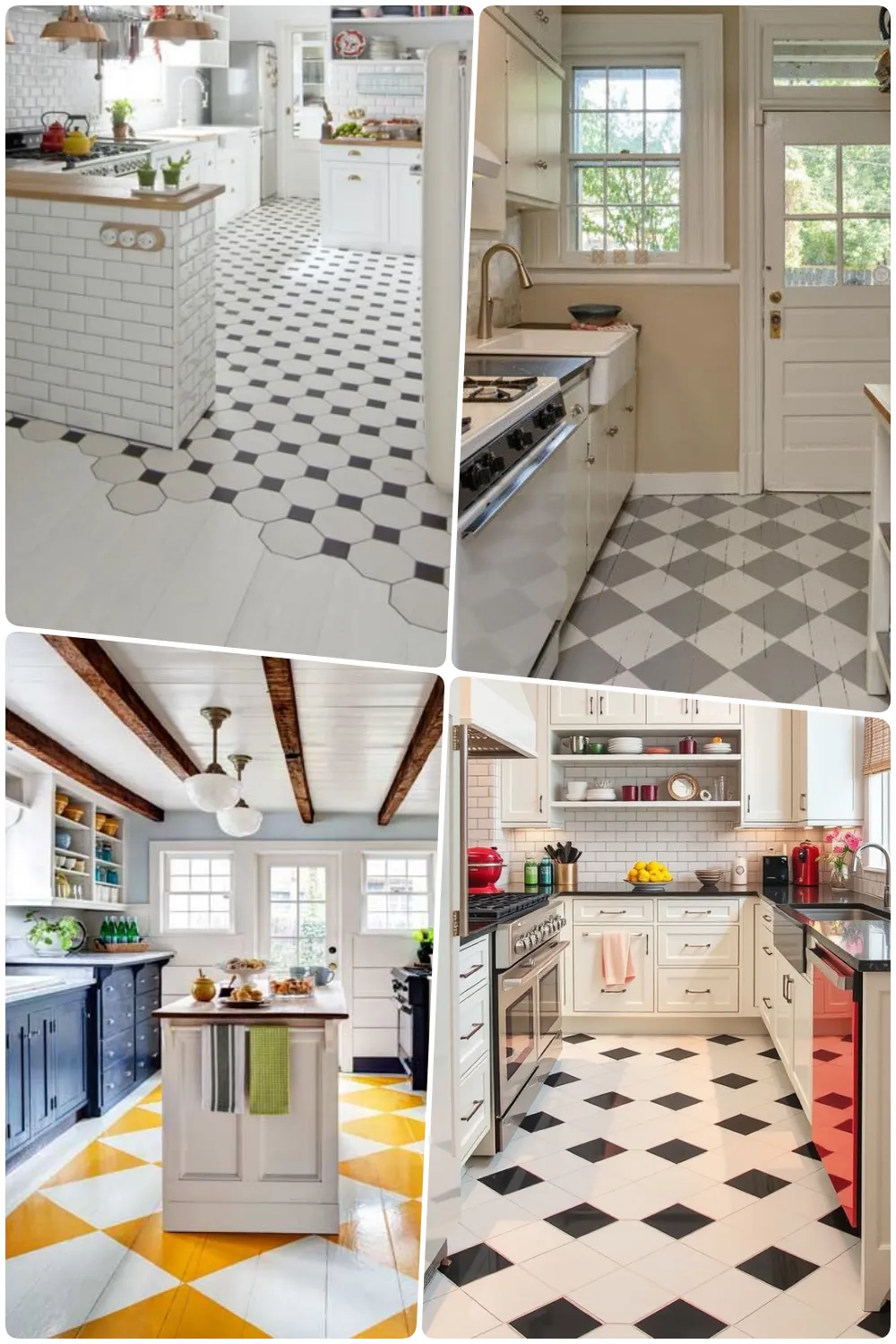
6. Bold Marble Floors
Why not infuse some grandeur into your home with striking marble floors? The allure of its swirled veins offers a touch of class and sophistication. Lay them out in eye-catching patterns like herringbone, or go for large slabs to really make a statement.
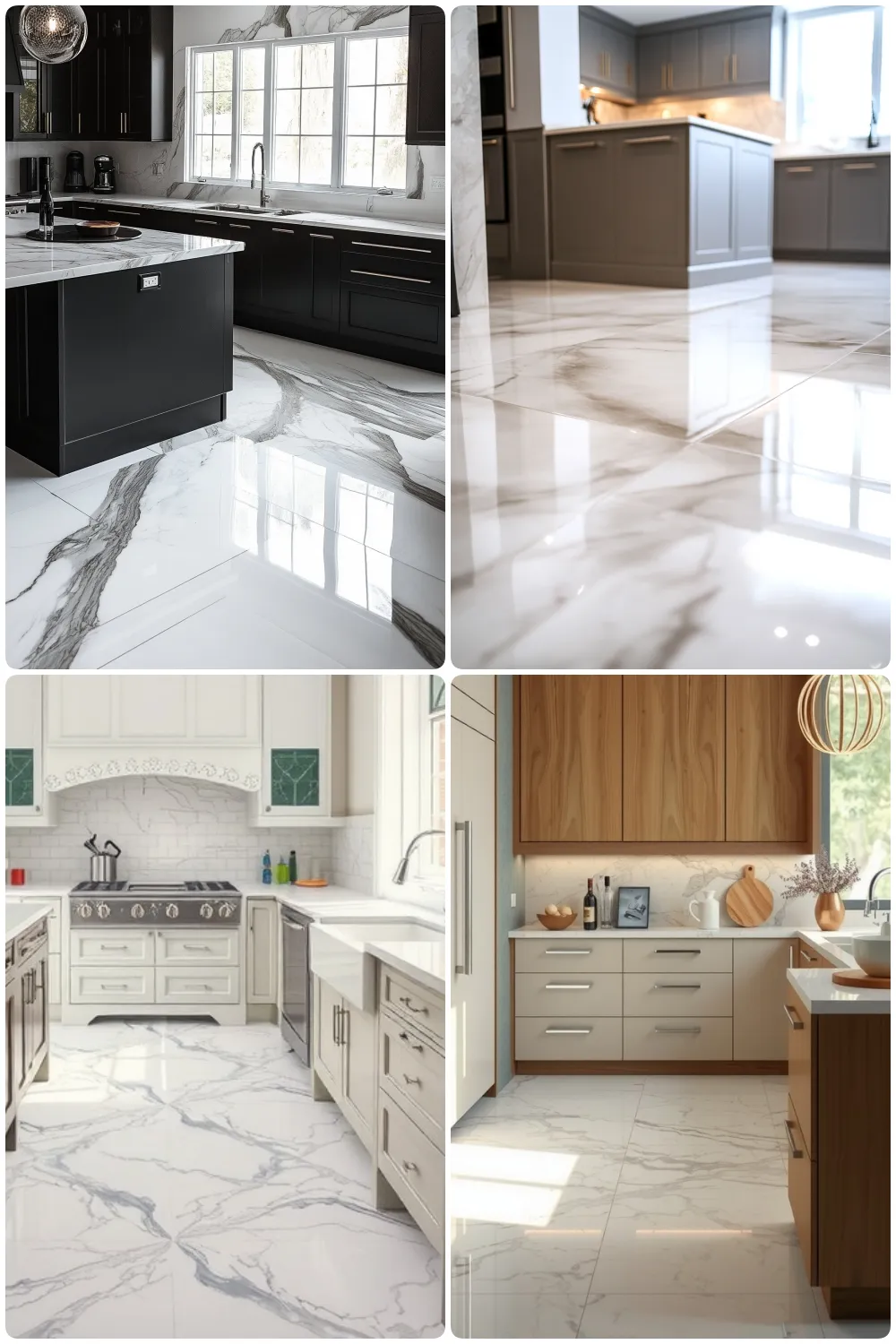
7. Mosaic Tiles
Mosaic tiles are perfect for adding a stylish flair, with options ranging from low-key monochromatic schemes to bright and lively colors. They’re especially great for turning floors into striking, eye-catching pieces.
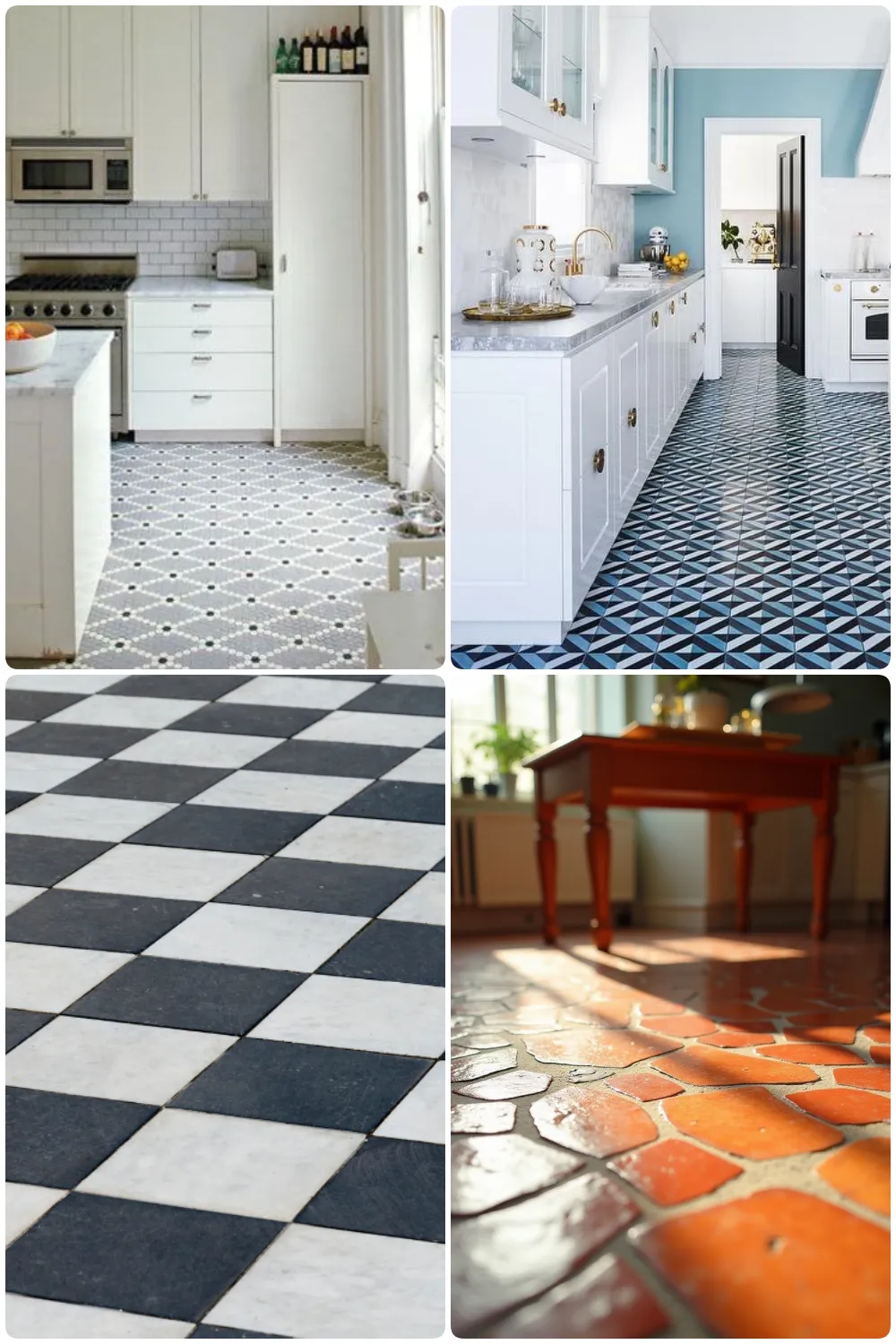
8. Patterned Wood Parquet
Hey, if you wanna break away from the basic wood flooring look, you might wanna take a peek at the parquet option.
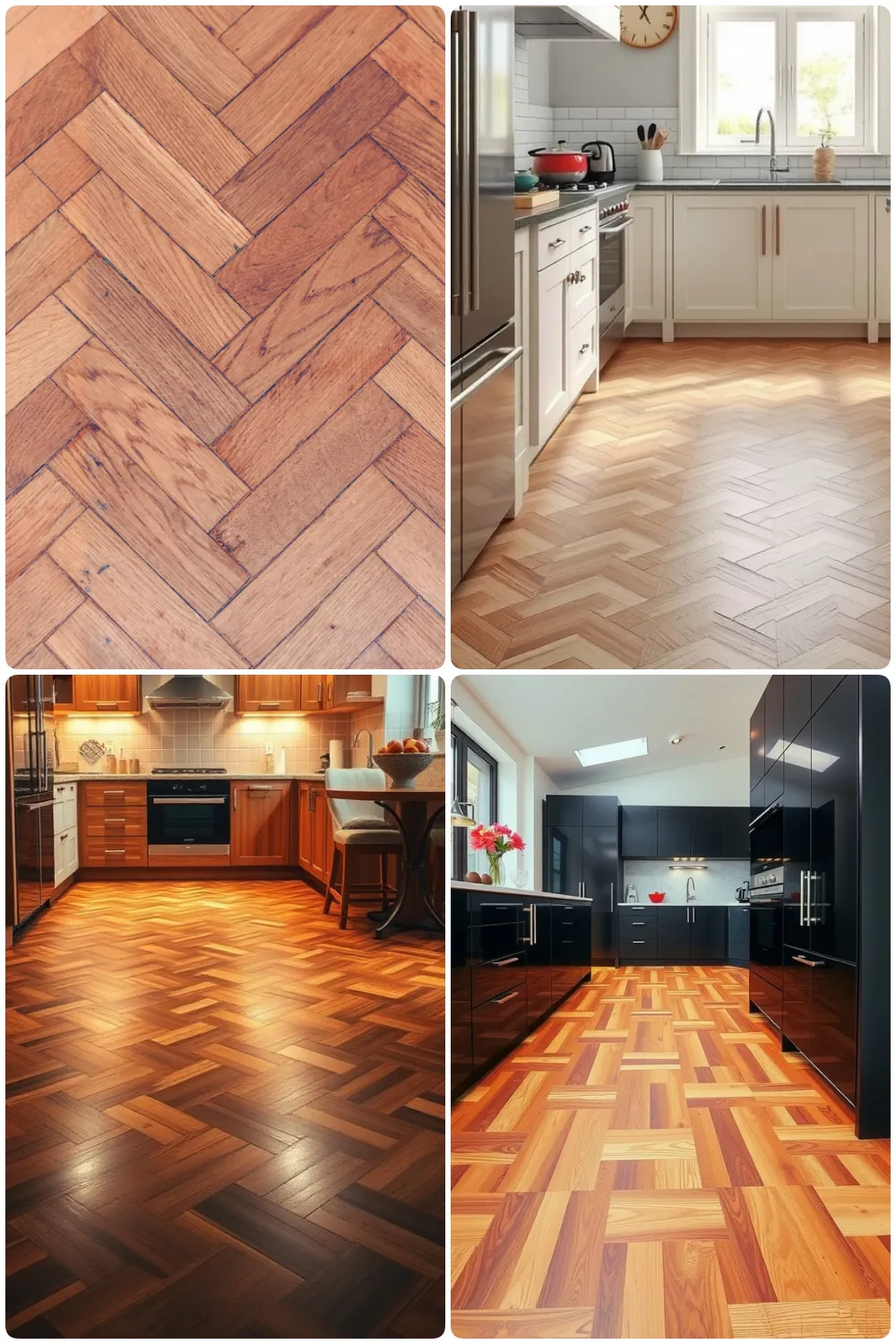
It’s got that chic, patterned flair that adds a little spice and warmth to your space. It dances right into both the modern and classic styles seamlessly.
9. Classic Hardwood
There’s something eternally charming about hardwood floors—they bring a cozy warmth that’s perfect for open-concept homes. They really shine by seamlessly flowing from the kitchen into other living nooks and crannies, giving the place a unified look.
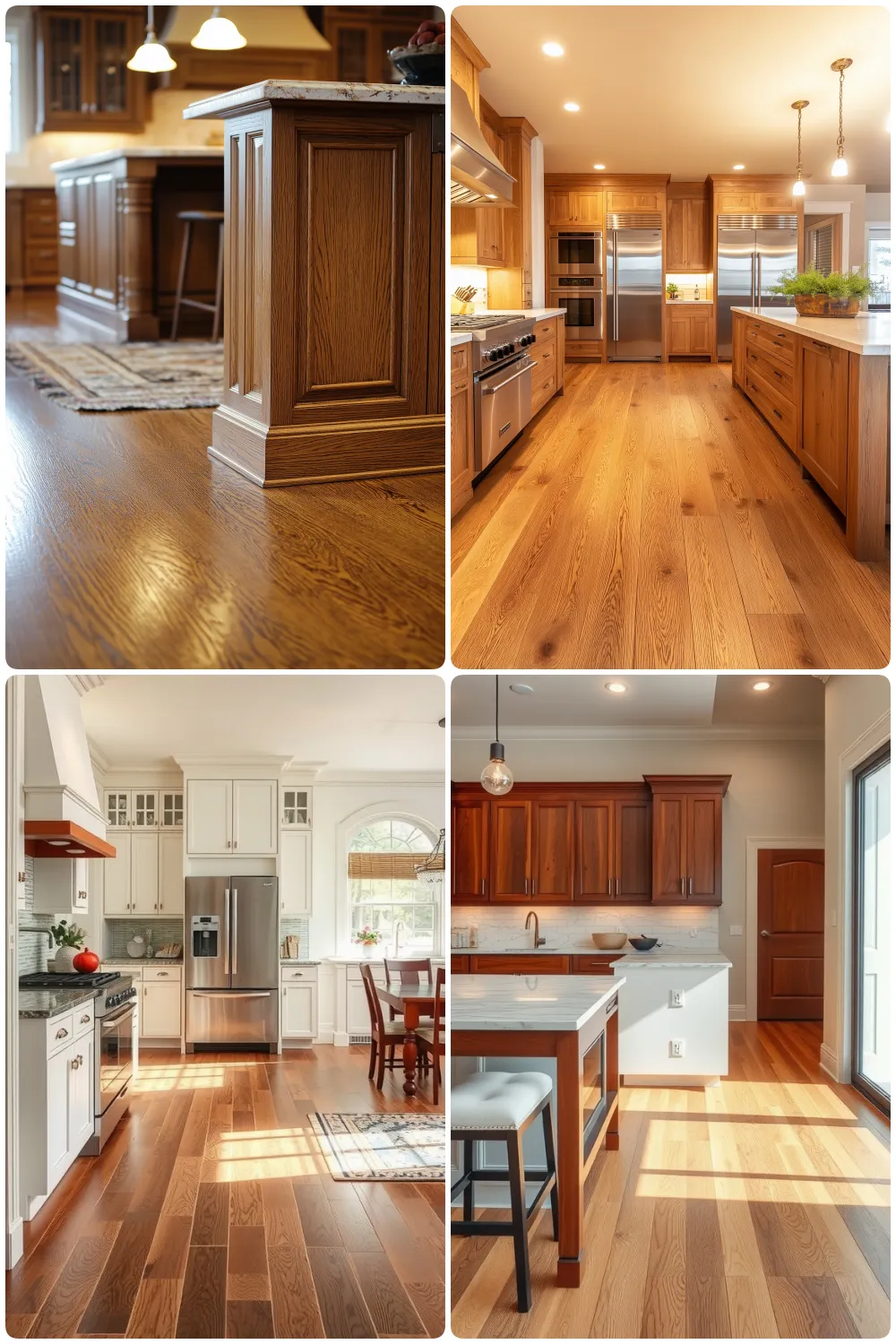
But key, here’s the thing: you’ll definitely want to keep up with proper maintenance to fend off any pesky water damage. Super key!
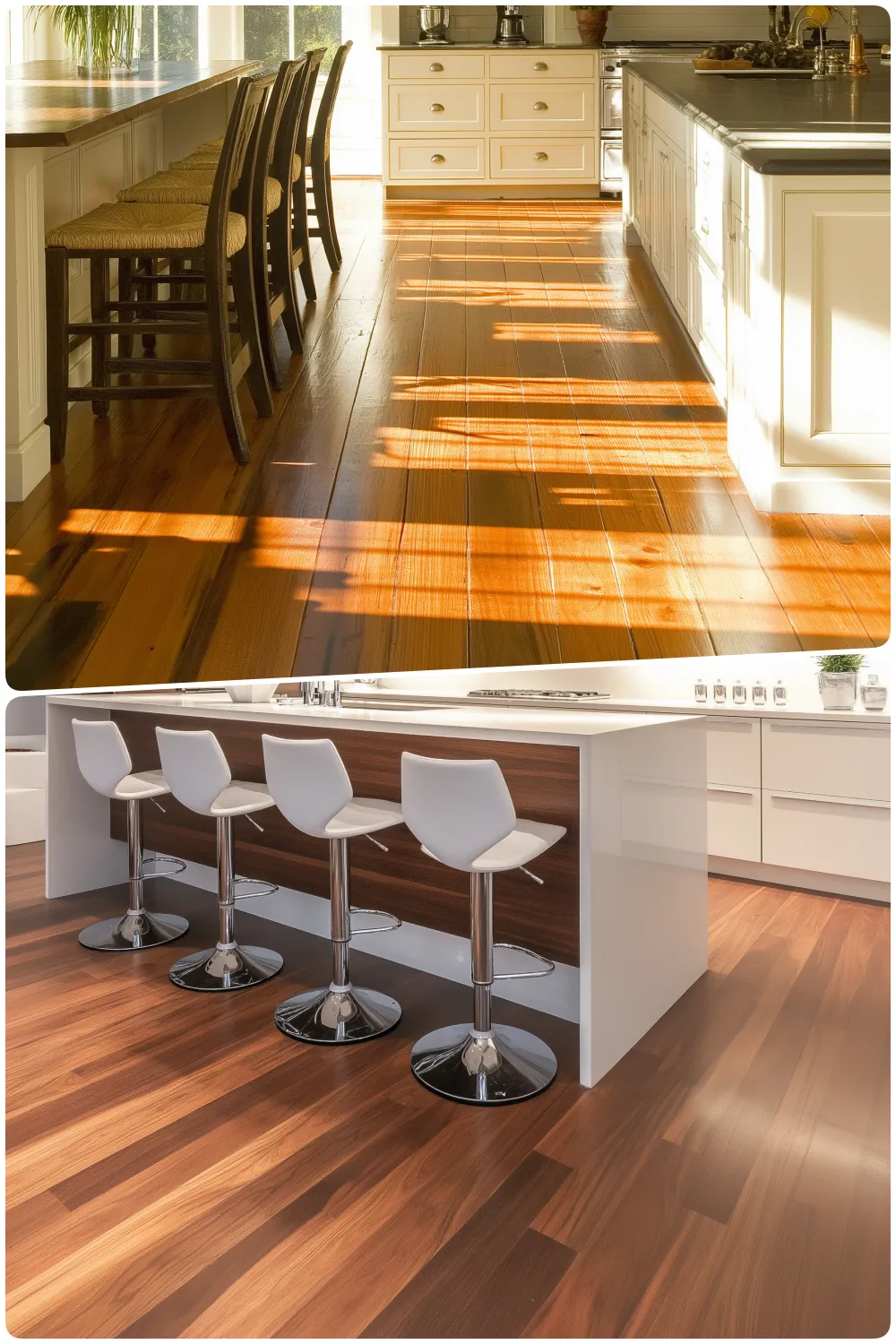
10. Colorful Tiles
So, you’re thinking of shaking things up in your kitchen? Well, bold, colorful tiles could be just what the doctor ordered to make your kitchen floor steal the show.
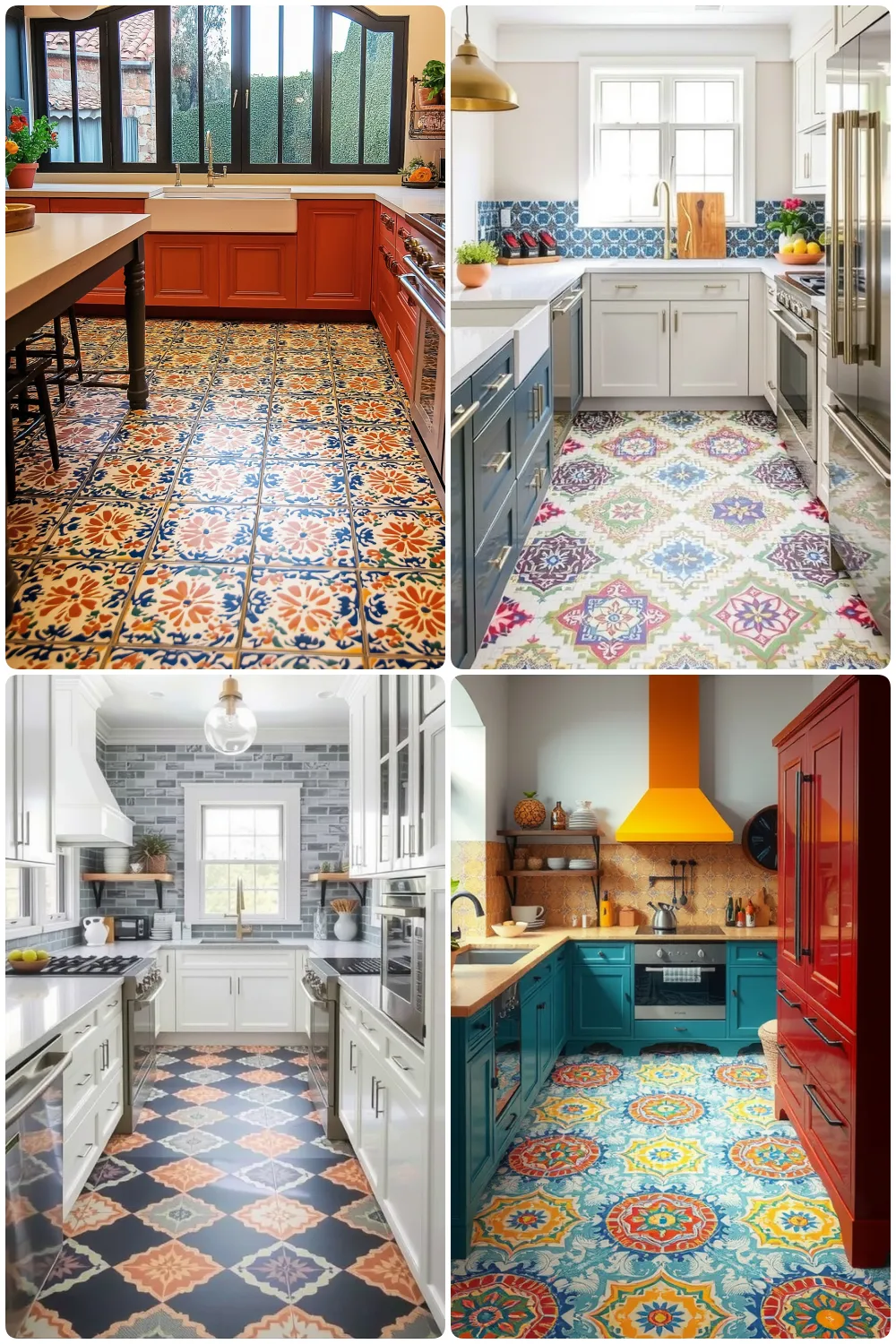
With all the funky patterns and lively colors to choose from, you can go for a playful, whimsical vibe or something more refined and elegant, all based on your style cravings.
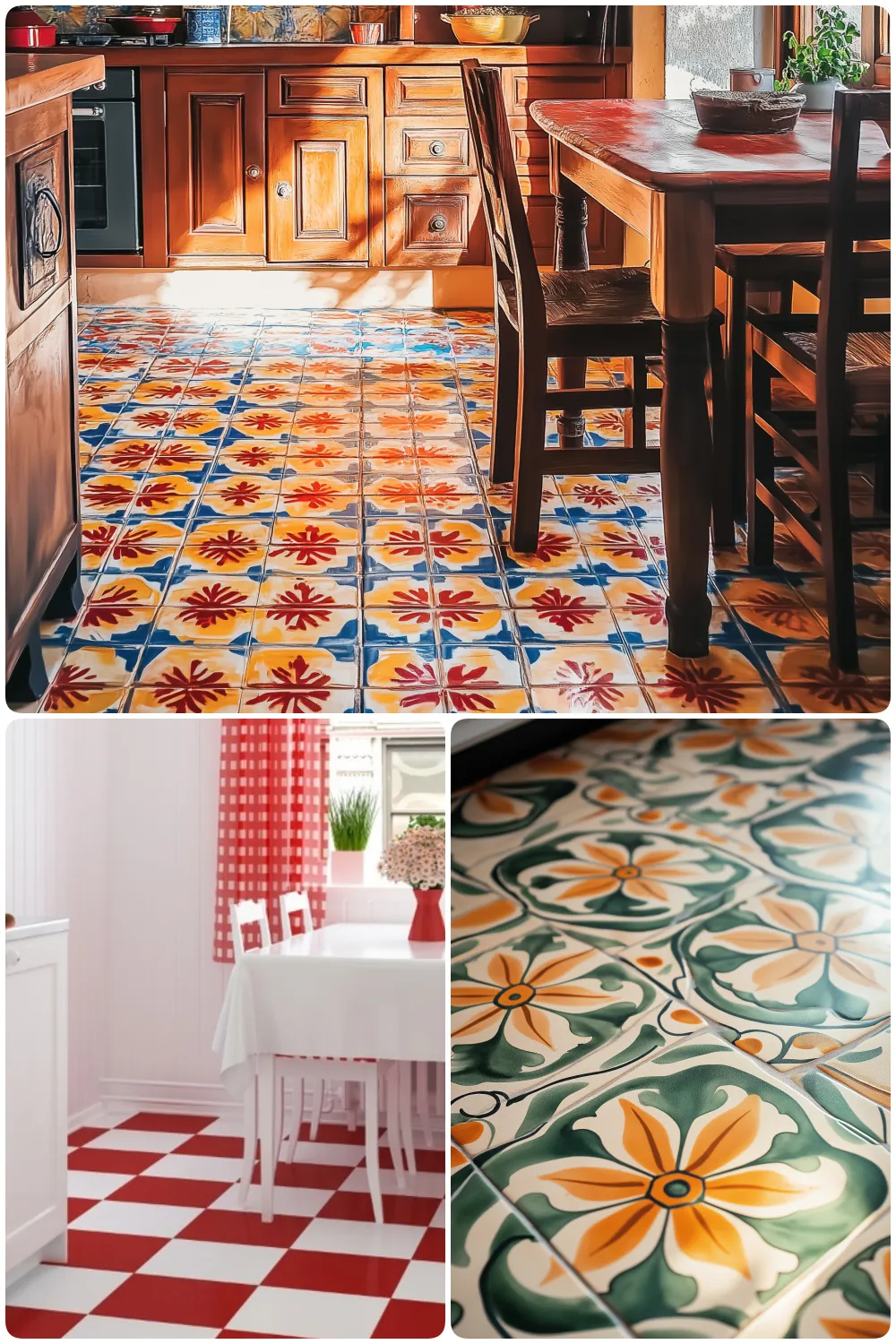
11. Dark Stone
Stone tiles, especially black slate ones, really up the ante with a dramatic flair and loads of texture. They’re tough as nails and offer that distinct natural stone vibe, with each tile having its own unique character.
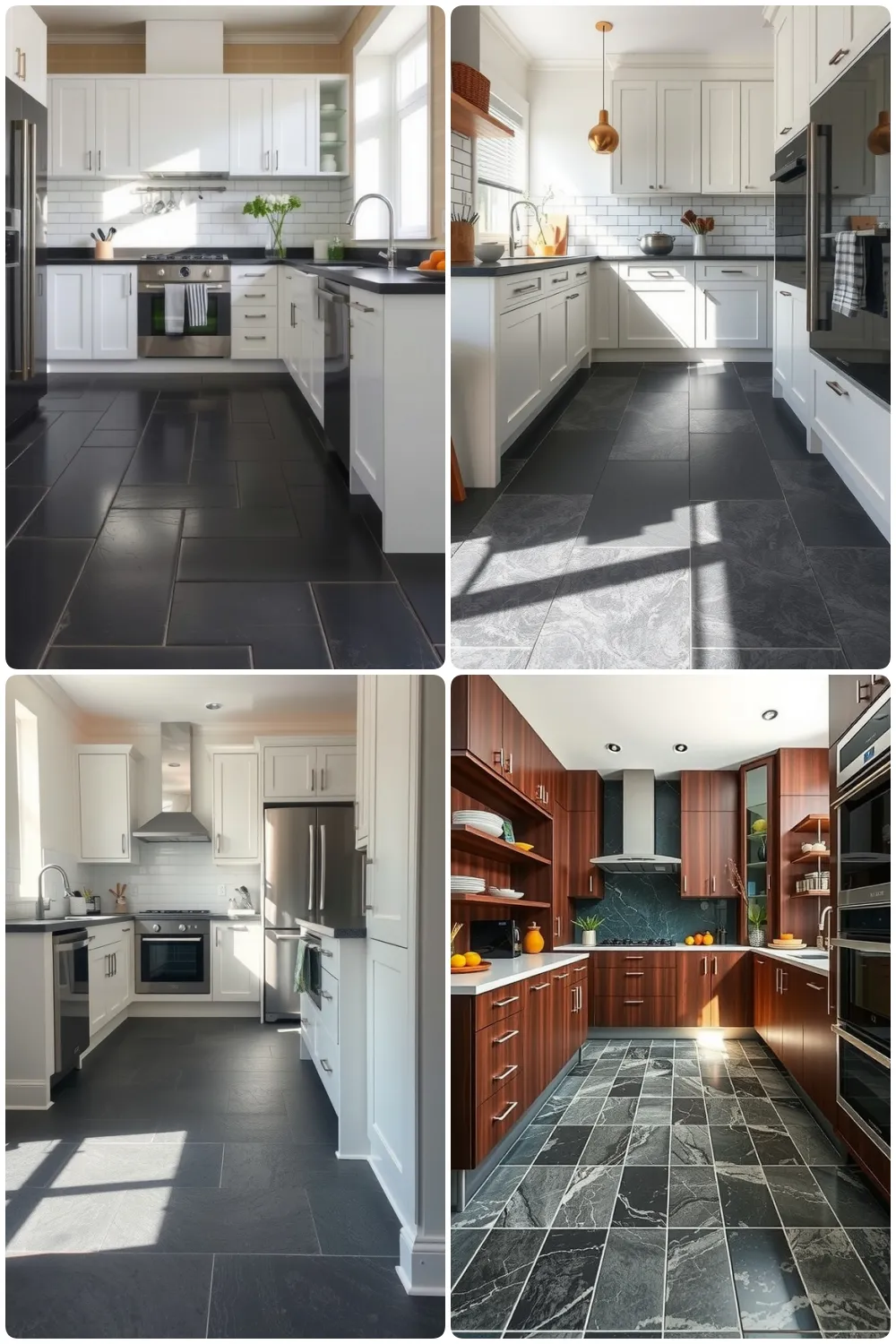
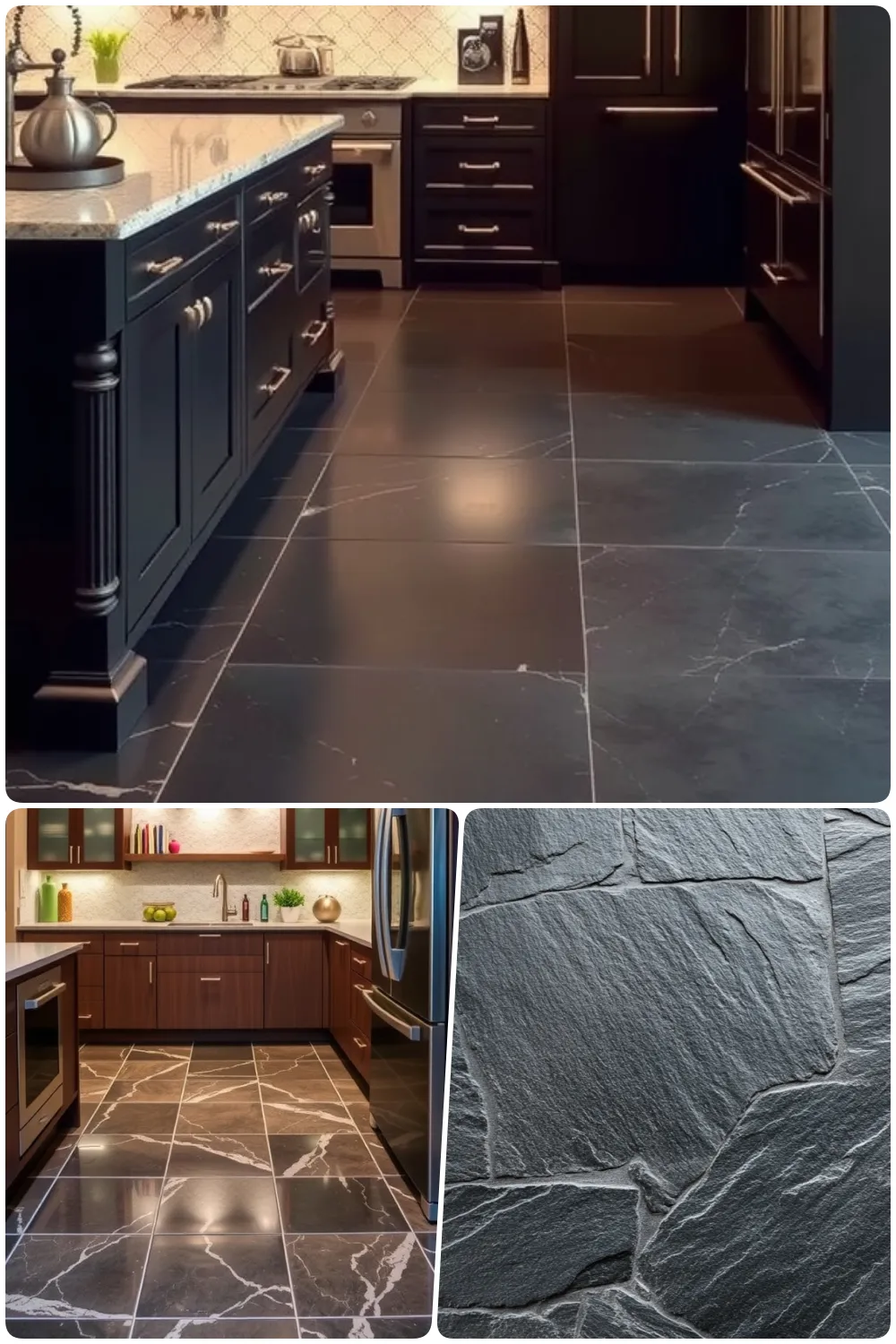
12. Cork Flooring
So, let’s chat about cork flooring. It’s eco-friendly, fantastic for soundproofing, and super comfy to walk on. And though it’s durable, just remember to reseal it occasionally. It’ll keep those scratches at bay!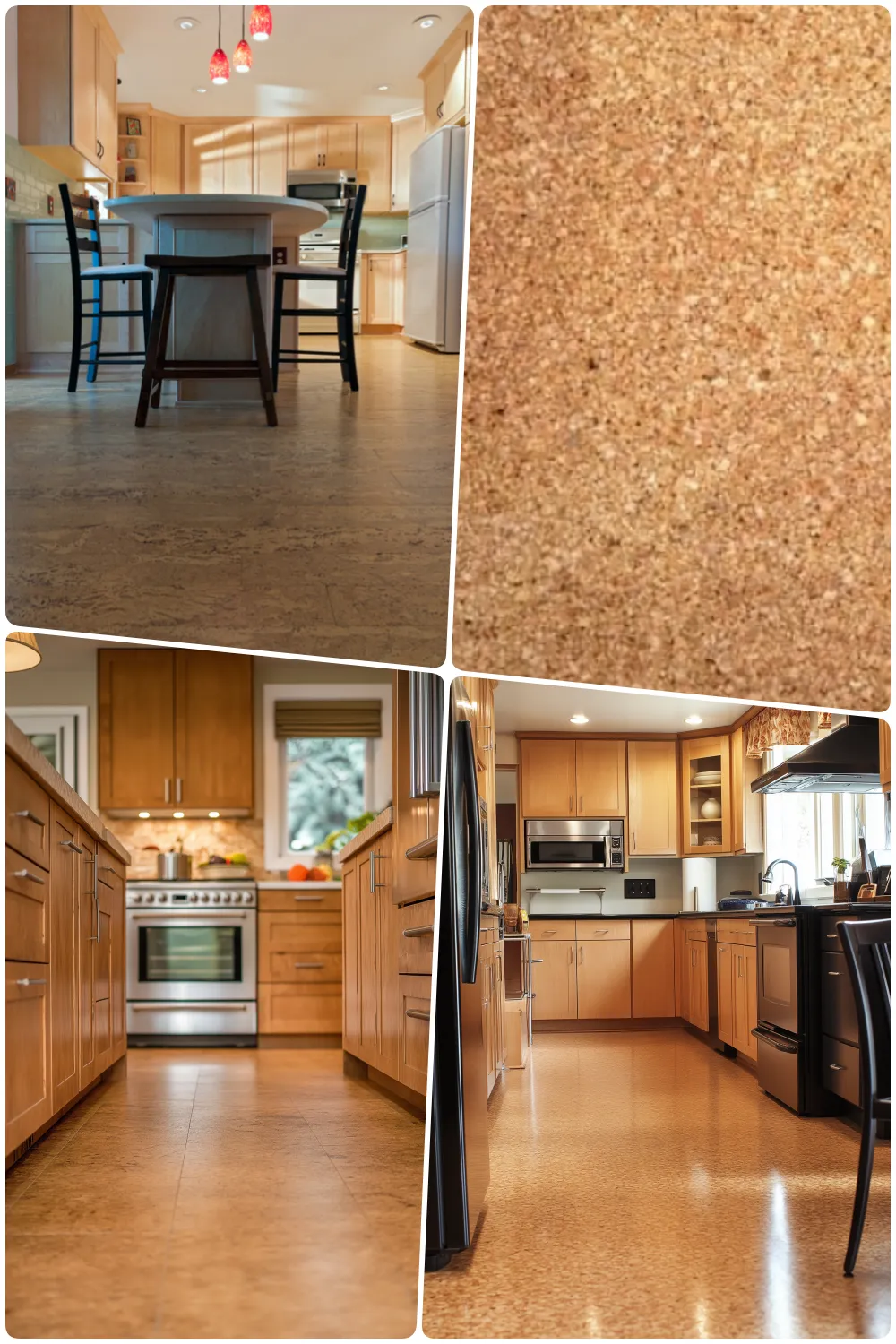
Easy maintenance means it stays looking great without a fuss. A smart choice for any home.
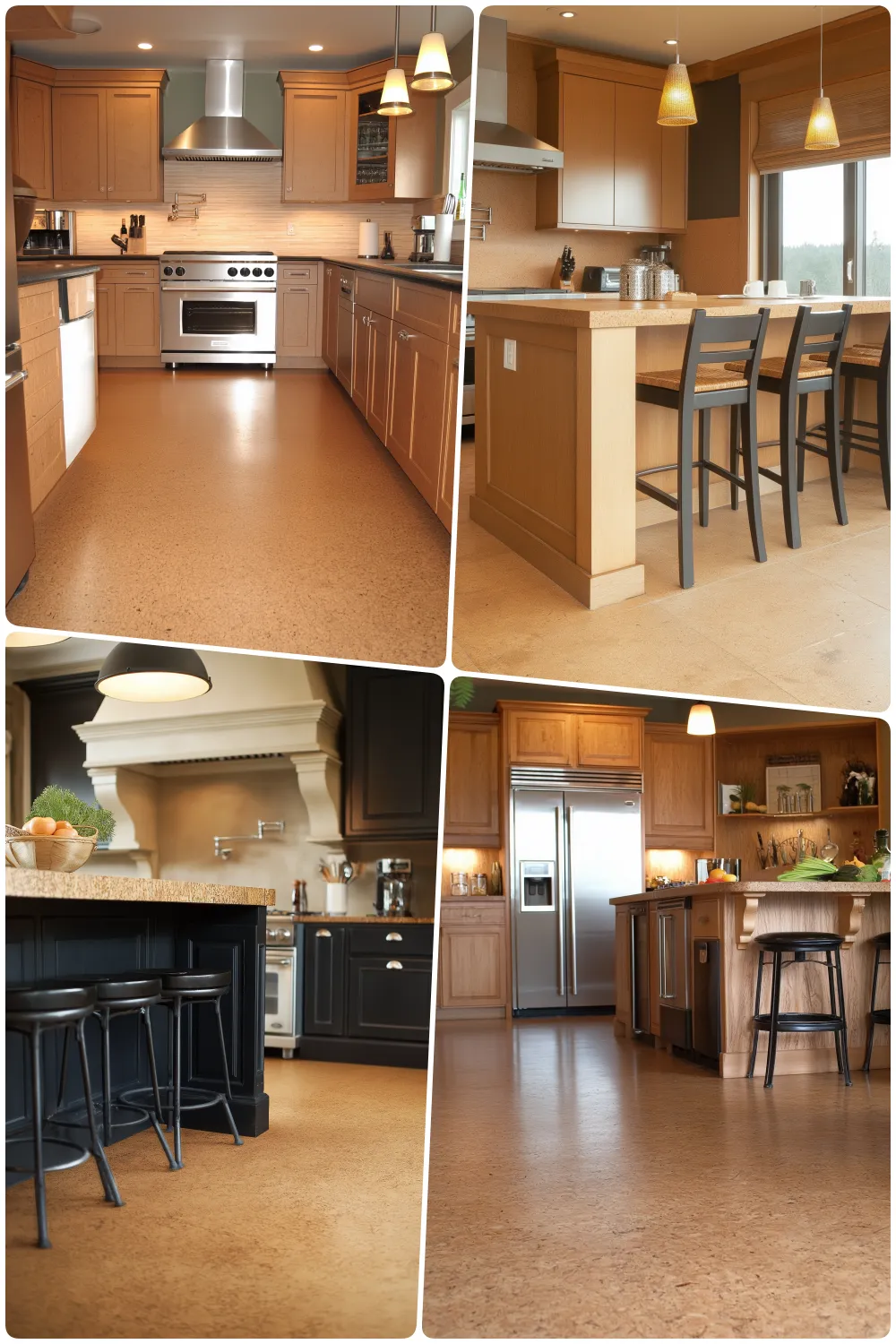
13. Concrete Flooring
Yeah, it’s catching on like wildfire these days! Folks love it mostly ’cause it’s tough as nails and you hardly need a whole shebang of maintenance.
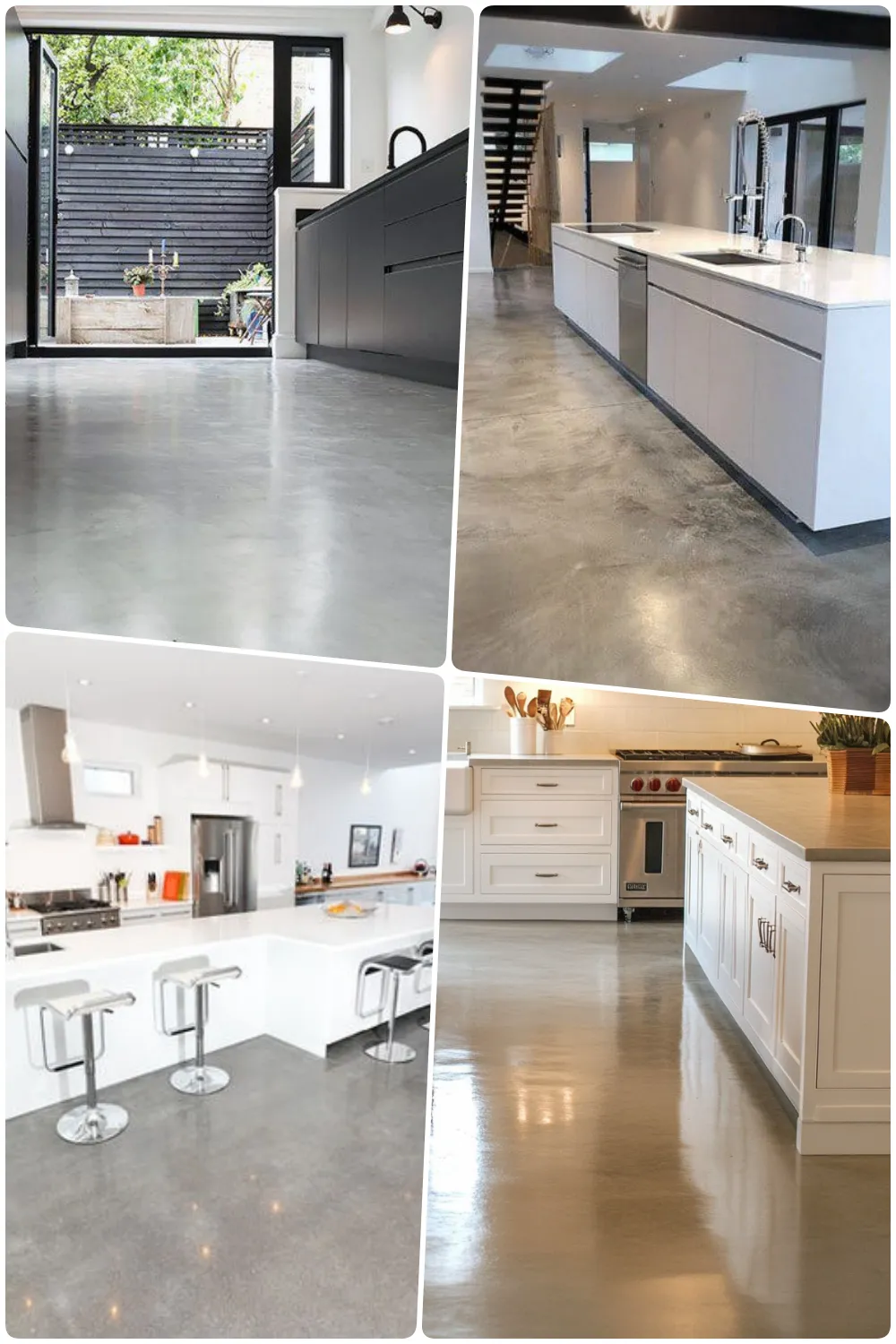
You can kinda get creative and dress it up too—be it with a glossy finish or a bit of color splashed in, you’re all set whether you’re going for that old-world charm or swanky modern vibe.
14. Tile Flooring
Ceramic and Porcelain Tiles
Both ceramic and porcelain tiles start life as natural clay that gets heated up at crazy high temperatures. (keeping your feet cool)
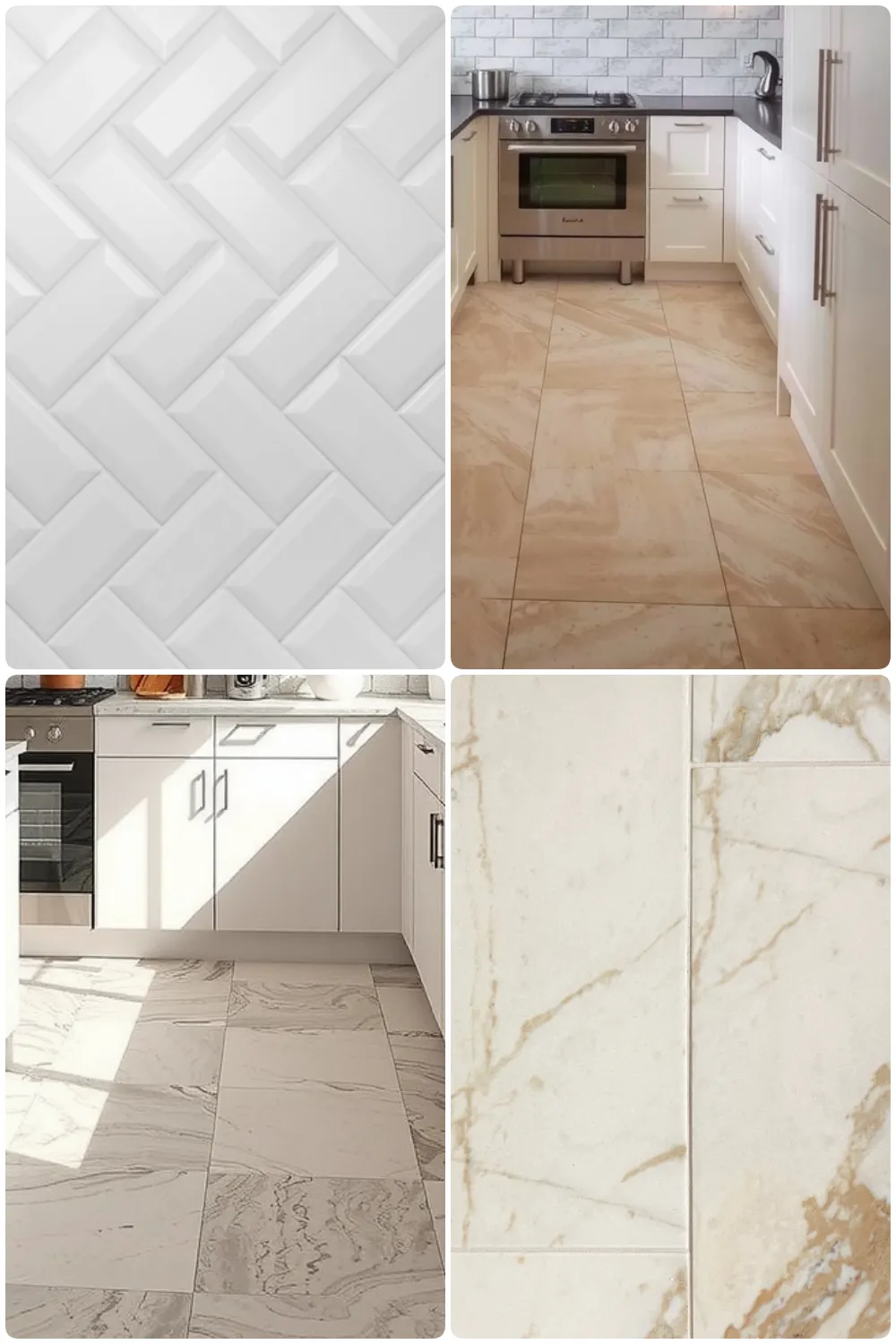
Why People Love ‘Em: These tiles last ages! Plus, you can get them in so many different styles: colors galore, fun patterns, and cool textures. Oh, and they laugh in the face of water, stains, and unsightly scratches. (excellent nono maintenance)
Couple of Things to Keep in Mind: Walking or standing on tiles for a long time can leave your feet a bit cool and uncomfy. And hey, watch out for those grout lines; if you’ve been lazy about sealing them, stains can surely sneak in.
Natural Stone Tiles
Alright, let’s talk natural stone tiles. You’ve got quite a menu—marble, granite, limestone, and slate each bringing their own flair with unique veins and color play. Pretty neat, right?
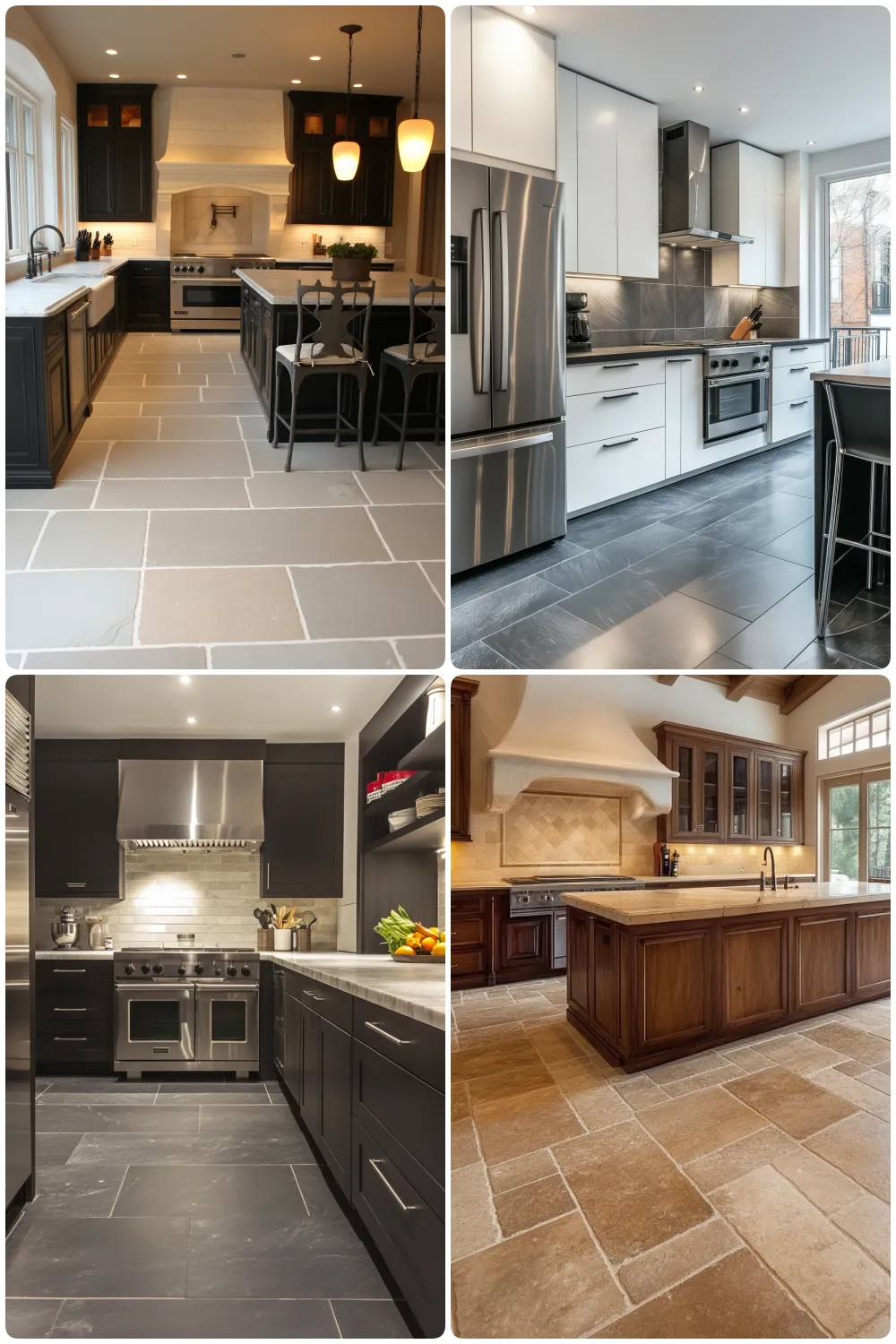
Benefits: These tiles are built to last and ooze luxury with that timeless vibe you’ve seen in high-end spots. They don’t mind a little splash but be sure to seal them to keep off those pesky stains.
Considerations: They’re not the cheapest or the easiest in terms of upkeep. And watch your step; they can get kinda “slip and slide” unless they’ve got a good texture going on.
15. Wood Flooring
Hardwood Flooring
If you’re toying with the idea of wood floors, solid hardwood’s a top contender. We’re talking oak, maple, or cherry, bringing a warm, natural look.
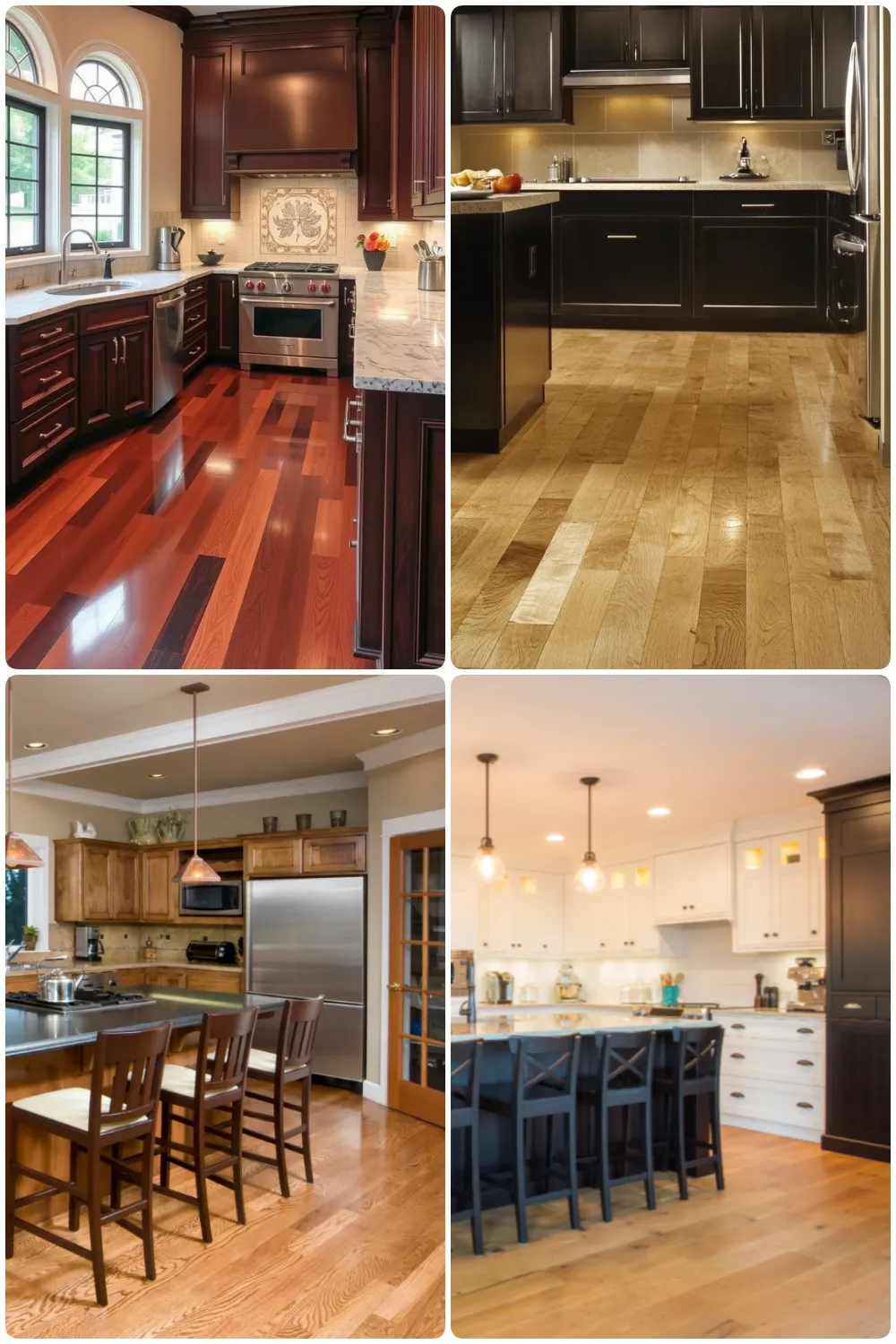
Benefits: You can sand and refinish it multiple times. It screams luxury—interesting choices for sprucing things up.
Considerations: It scratches and dents easily, and water’s no friend unless it’s sealed well. Plus, it can cost a pretty penny.
Engineered Wood Flooring
It flaunts a layer of real wood on a sturdy plywood or fiberboard base.
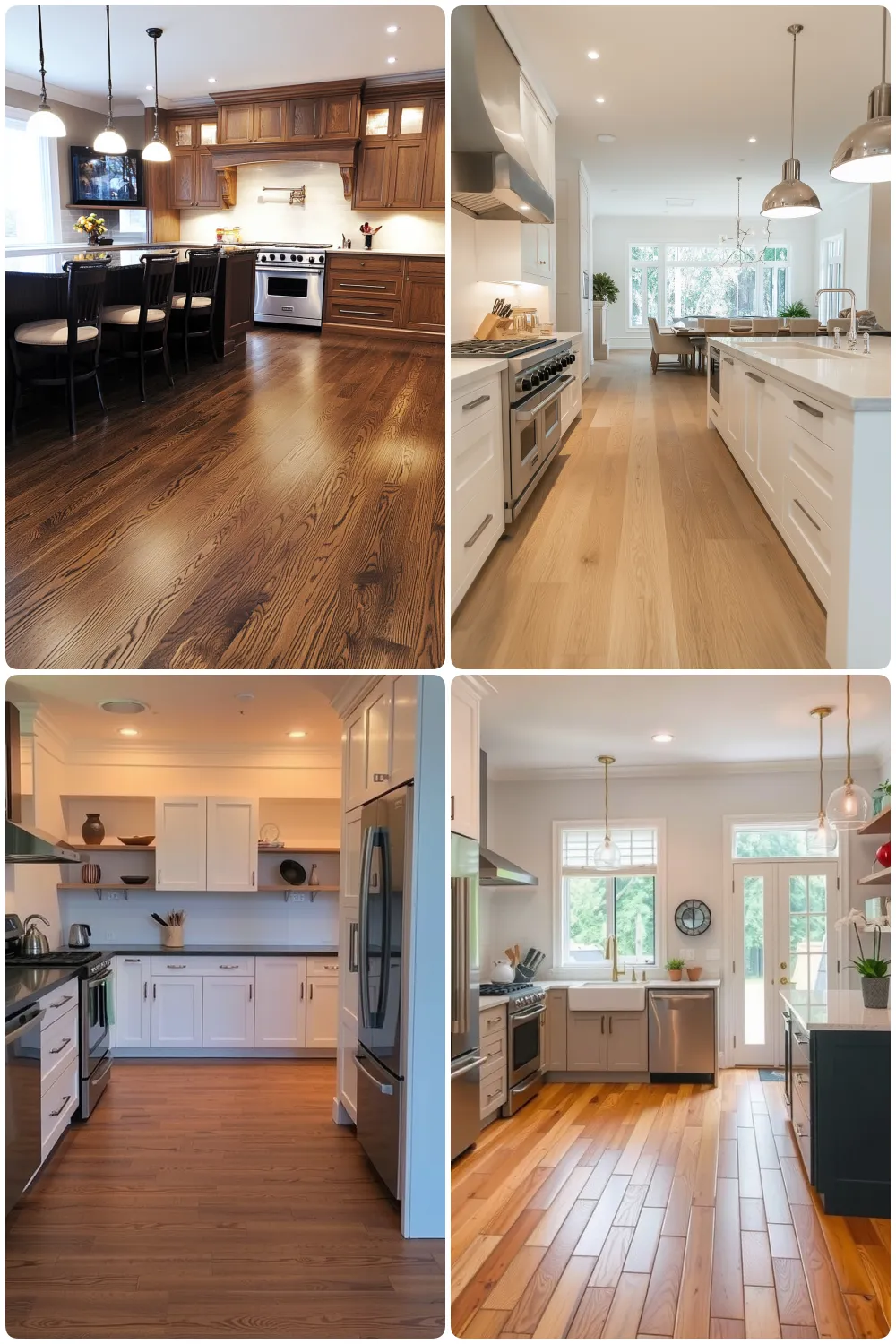
Benefits: Better at handling moisture than solid hardwood and super easy to install thanks to the click-lock system.
Considerations: Not as tough as solid wood, and its thin veneer means fewer refinishing opportunities.
16. Laminate Flooring
You know, laminate flooring is kind of a neat invention. It’s basically got this photo of wood or stone protected by a clear layer which is stuck onto a solid fiberboard base.
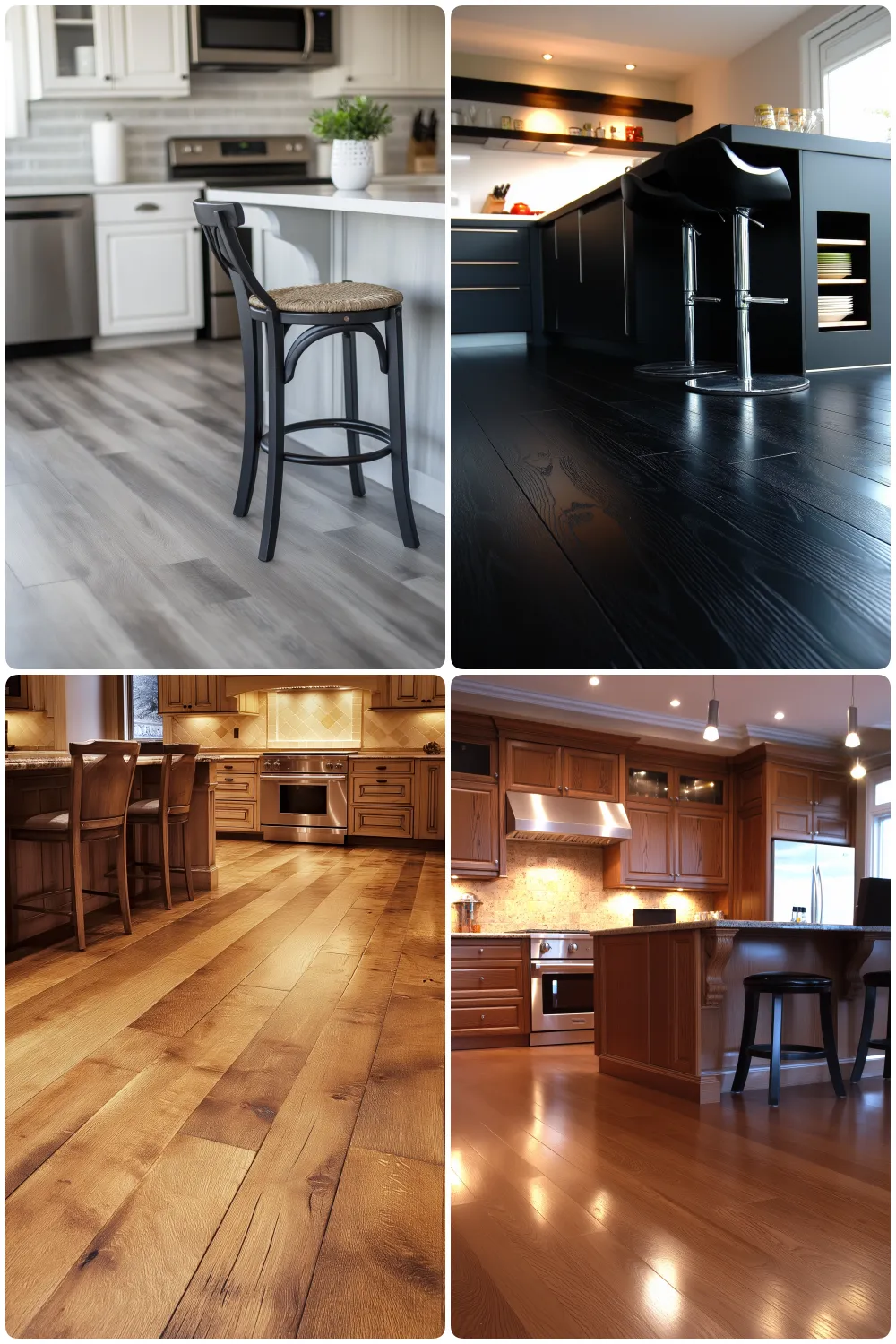
Benefits: Well, it’s pretty affordable and a breeze to pop in yourself. And hey, it’s tough against sweeps and scratches, all while looking like real materials.
But here’s the catch: it doesn’t get along with wet spots. If water decides to slip into those seams, it could spell trouble. Plus, it’s not quite on par with good old hardwood when it comes to lasting forever and, sadly, there’s no refinishing it once it’s scuffed up.
17. Vinyl Flooring
Luxury Vinyl Planks (LVP) and Tiles (LVT)
Made from multiple layers of PVC vinyl, mimicking wood or tile finishes.
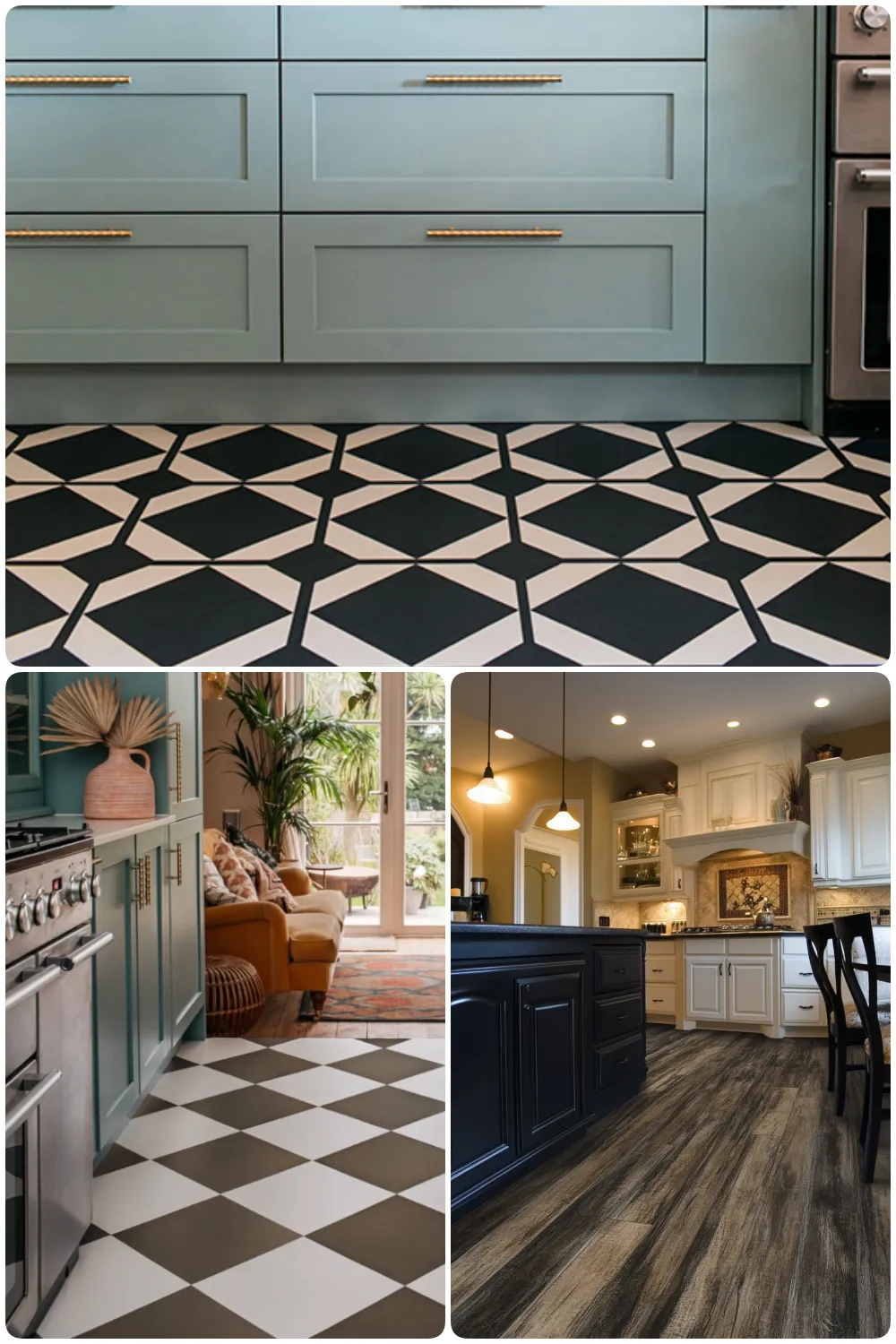
Pros: Super water-resistant and very durable. They feel nice underfoot and come in countless styles.
Keep in mind: Fixing them isn’t easy; pricier versions exist, and they don’t boost home value nearly as much as natural flooring.
18. Stone Flooring
Marble and Granite
Marble and Granite. They’re famous for their style and class!
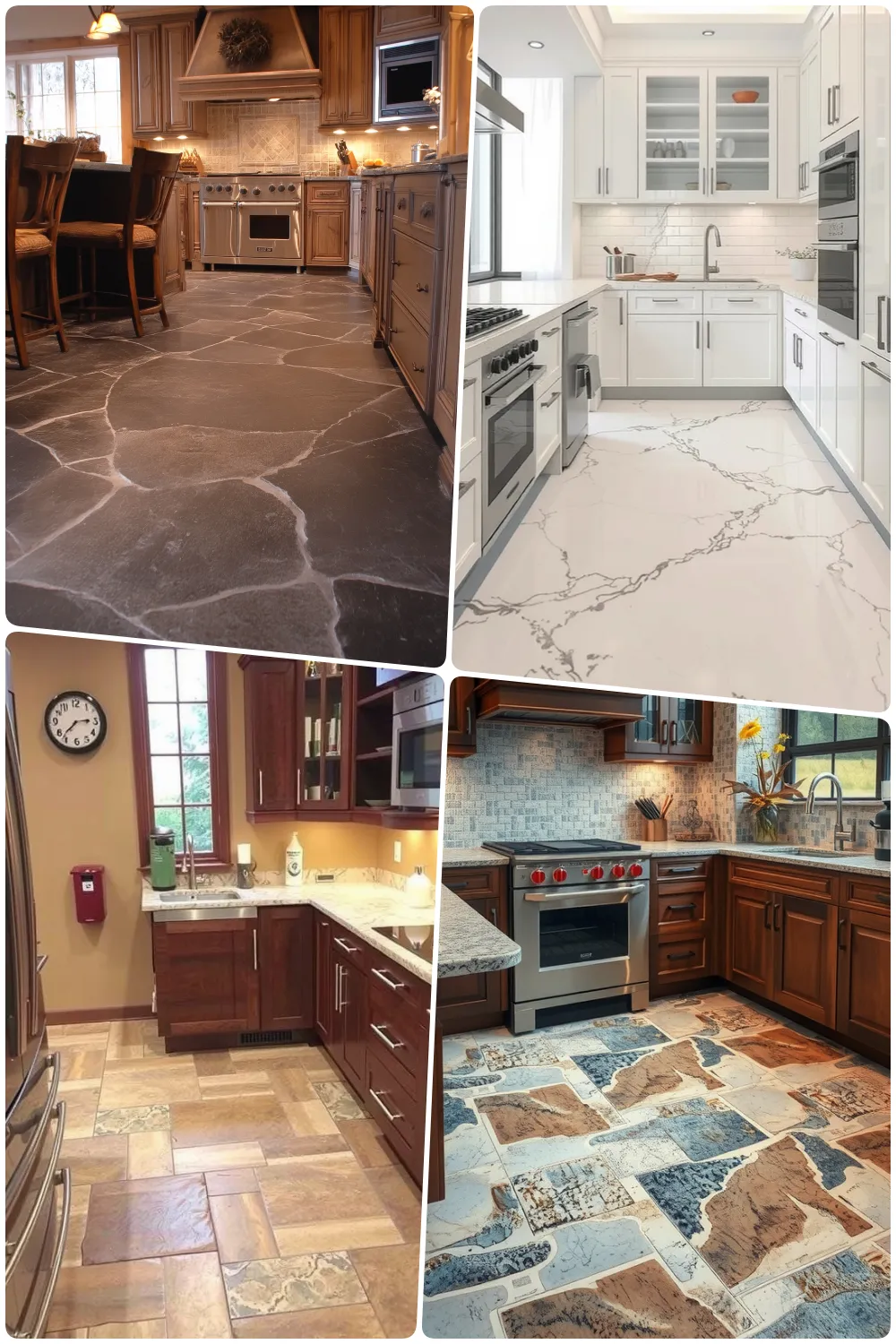
Pros: They’re about as durable as it gets. They add meaning oomph and value to your kitchen!
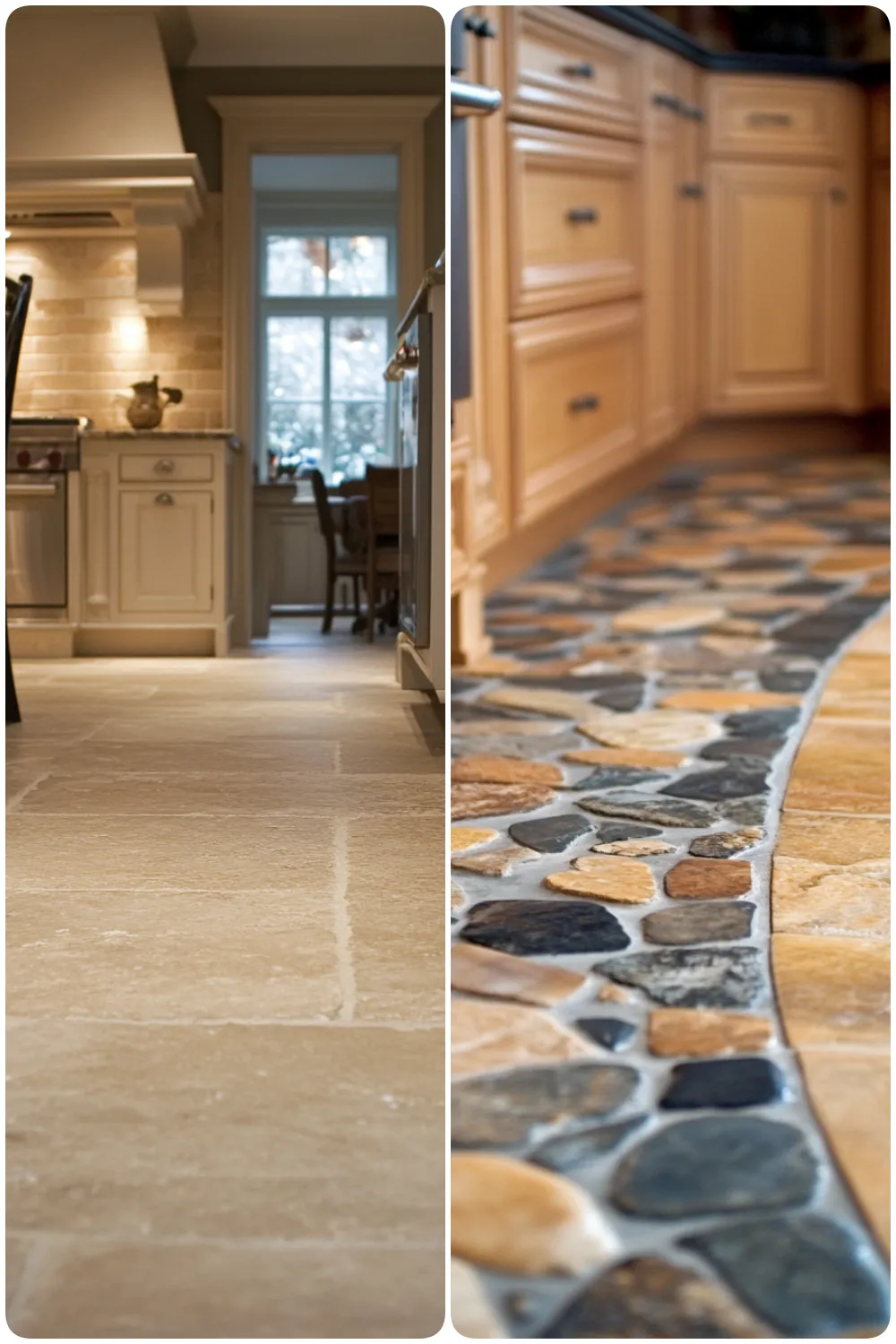
Cons: Pricey, and they need sealing to dodge stains. Oh, and the cool, hard surface? You might want some rugs or mats hanging around for coziness.
Slate Flooring
Slate flooring’s all about strength and that rustic, naturally split look you can’t get enough of.
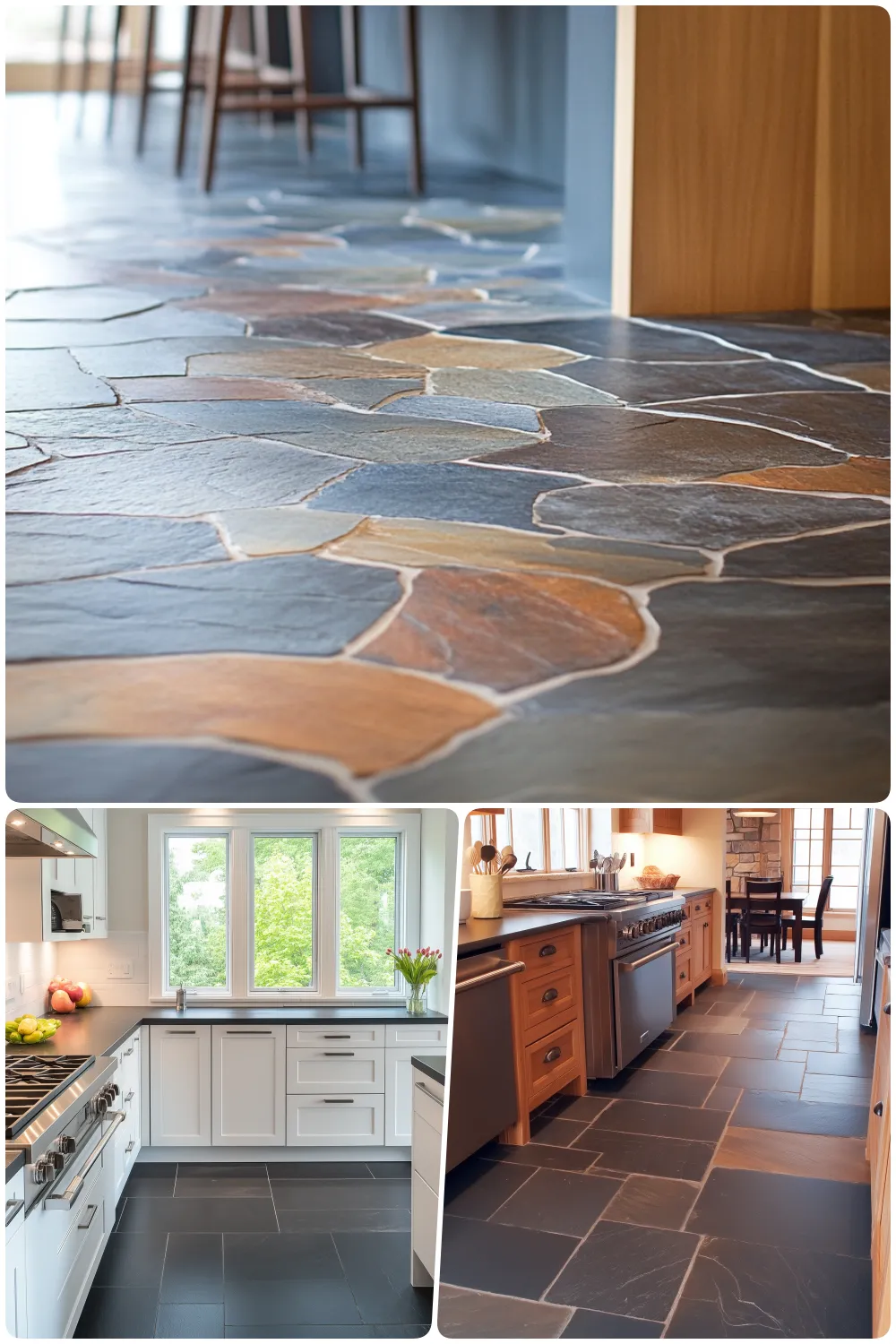
Pros? Besides offering a comfy rustic aesthetic, it’s super slip-resistant, which is great if you have a busy household hurriedly scuttling about.
There are some watchouts though: sealing’s needed to dodge stains, and those upfront costs can be steep. Still, some find the long-term appeal totally worth it!
19. Concrete Flooring
Think tough but beautiful with those concrete slabs you can dress up with various finishes—be it polish, stain, or pattern stamping.
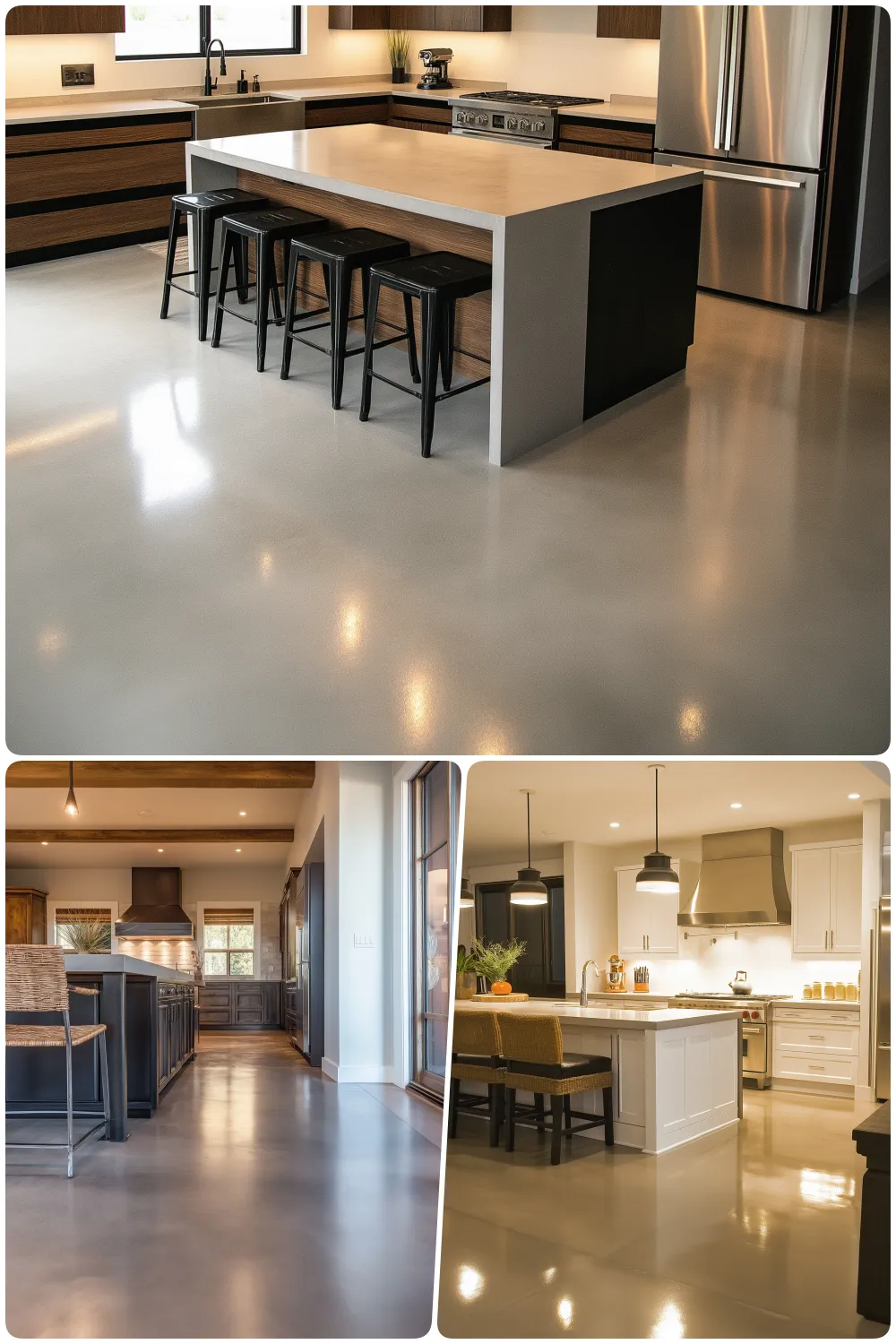
What’s Good: Stands the test of time and fits any style you like. Easy peasy cleaning if you’re up-to-date with sealers.
What to Keep in Mind: They’re hard on the feet and a bit chilly. Cracking can be their downfall as time goes by, requiring you to redo the sealer occasionally.
Initial Purchase Cost
Material Costs
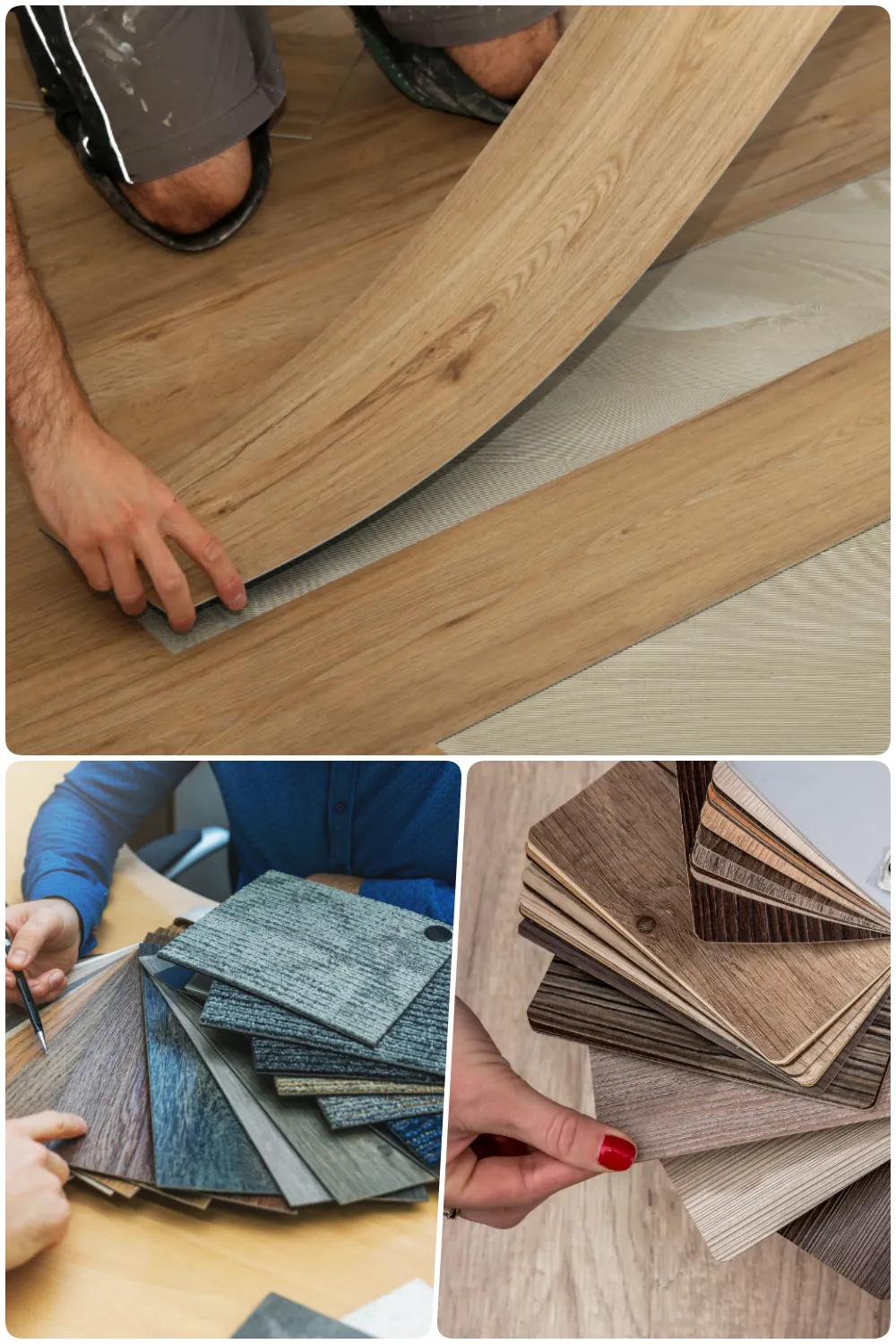
Tile Flooring: Generally ranges from $1 to $20 per square foot, depending on whether it’s ceramic, porcelain, or natural stone.
Hardwood Flooring: Typically costs between $5 and $15 per square foot, with exotic woods on the higher end.
Engineered Wood Flooring: Priced at approximately $4 to $10 per square foot, often less expensive than solid hardwood.
Laminate Flooring: More affordable, generally between $1 and $5 per square foot.
Vinyl Flooring (LVP/LVT): Ranges from $2 to $7 per square foot, offering a cost-effective alternative to natural materials.
Stone Flooring: Can vary significantly, from $7 to $20 per square foot, depending on the type of stone.
Concrete Flooring: Basic installations start around $3 to $6 per square foot, with decorative finishes increasing the price to $10 or more.
Cork Flooring: Typically costs between $3 and $8 per square foot, falling in the mid-range price category.
Installation Costs
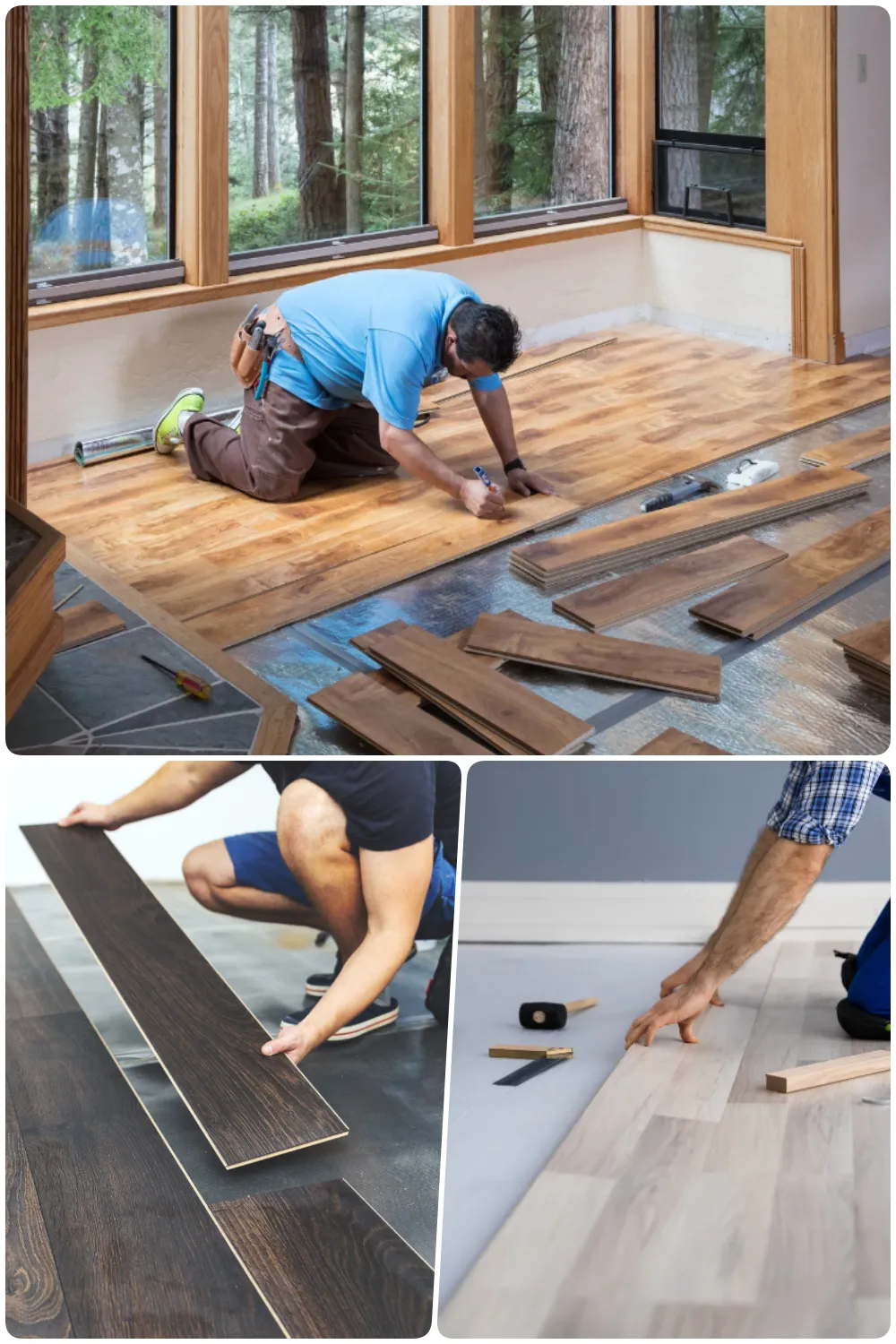
Professional Installation:
Tile: Installation can cost an additional $5 to $15 per square foot due to the labor-intensive nature of laying and grouting tiles.
Hardwood: Installation typically adds $3 to $8 per square foot, requiring expertise in cutting, fitting, and finishing.
Engineered Wood and Laminate: Easier to install, often costing $2 to $5 per square foot for professional installation.
Vinyl: Professional installation averages $1 to $3 per square foot, often more straightforward than tile or wood.
Stone: Installation costs are higher ($7 to $15 per square foot) due to the complexity and weight of the material.
Concrete: Installation costs can range from $2 to as much as $8 per square foot if decorative features are added.
Cork: Installation typically costs $1 to $4 per square foot, relatively simple compared to other materials.
DIY vs. Professional Installation:
DIY Savings: Considering doing it yourself? You might save some cash installing laminate, vinyl, or engineered wood. But ask yourself if you’ve got the skills to make it look good.
Professional Benefits: Pros give you that perfect finish, which is a big deal for complicated stuff like natural stone and tile. Sometimes, it’s worth letting the experts handle it for a top-notch result.

